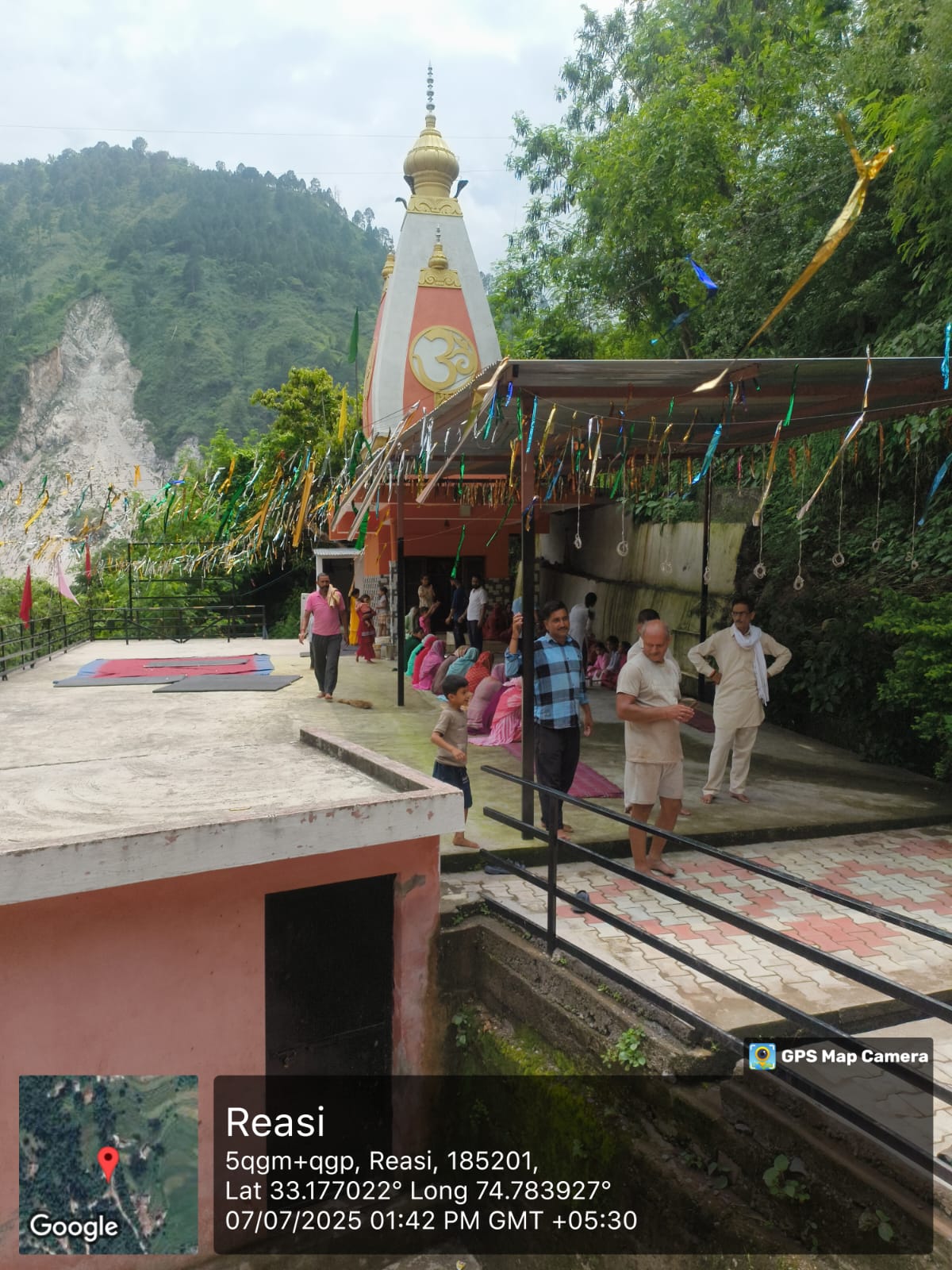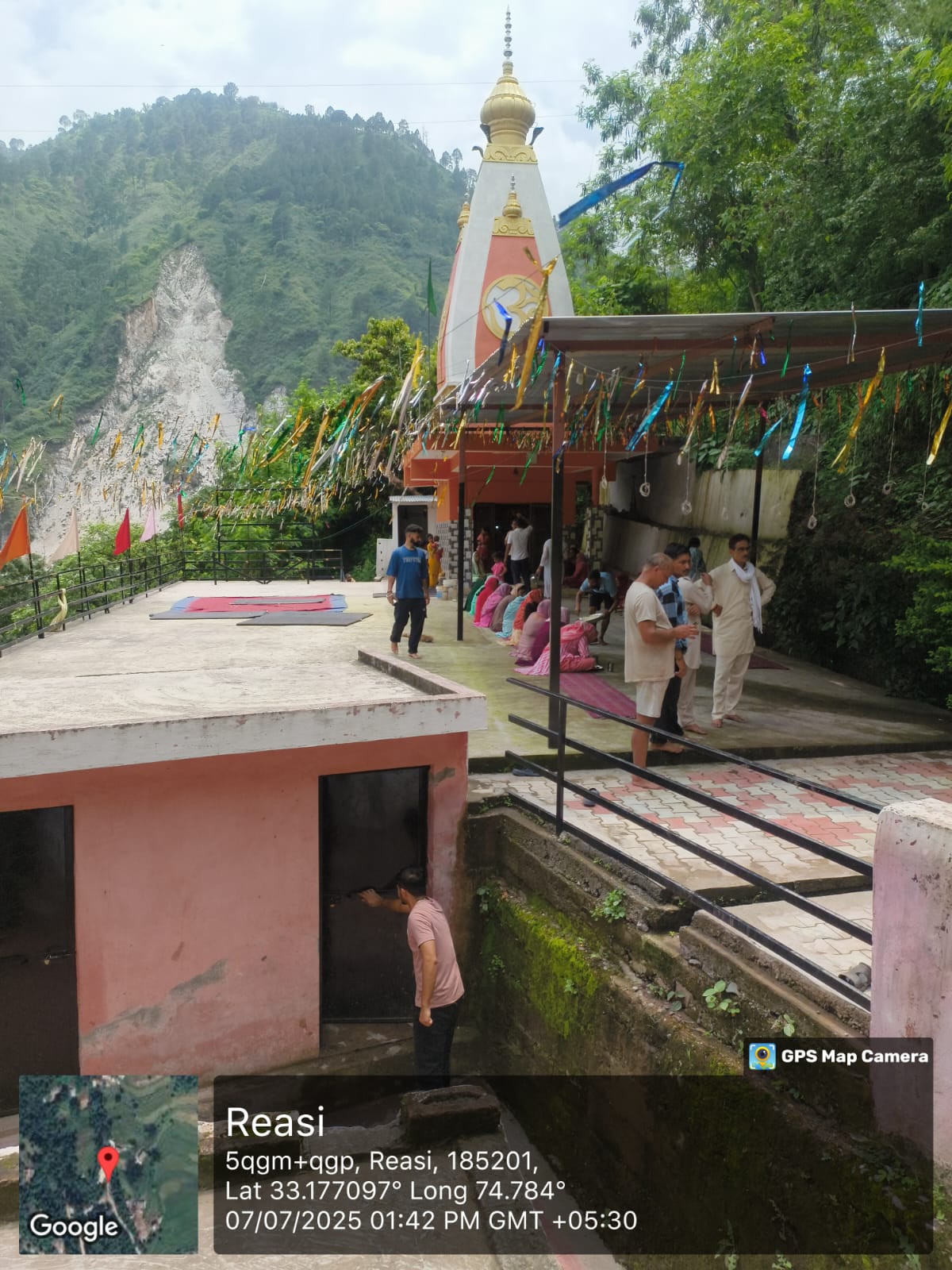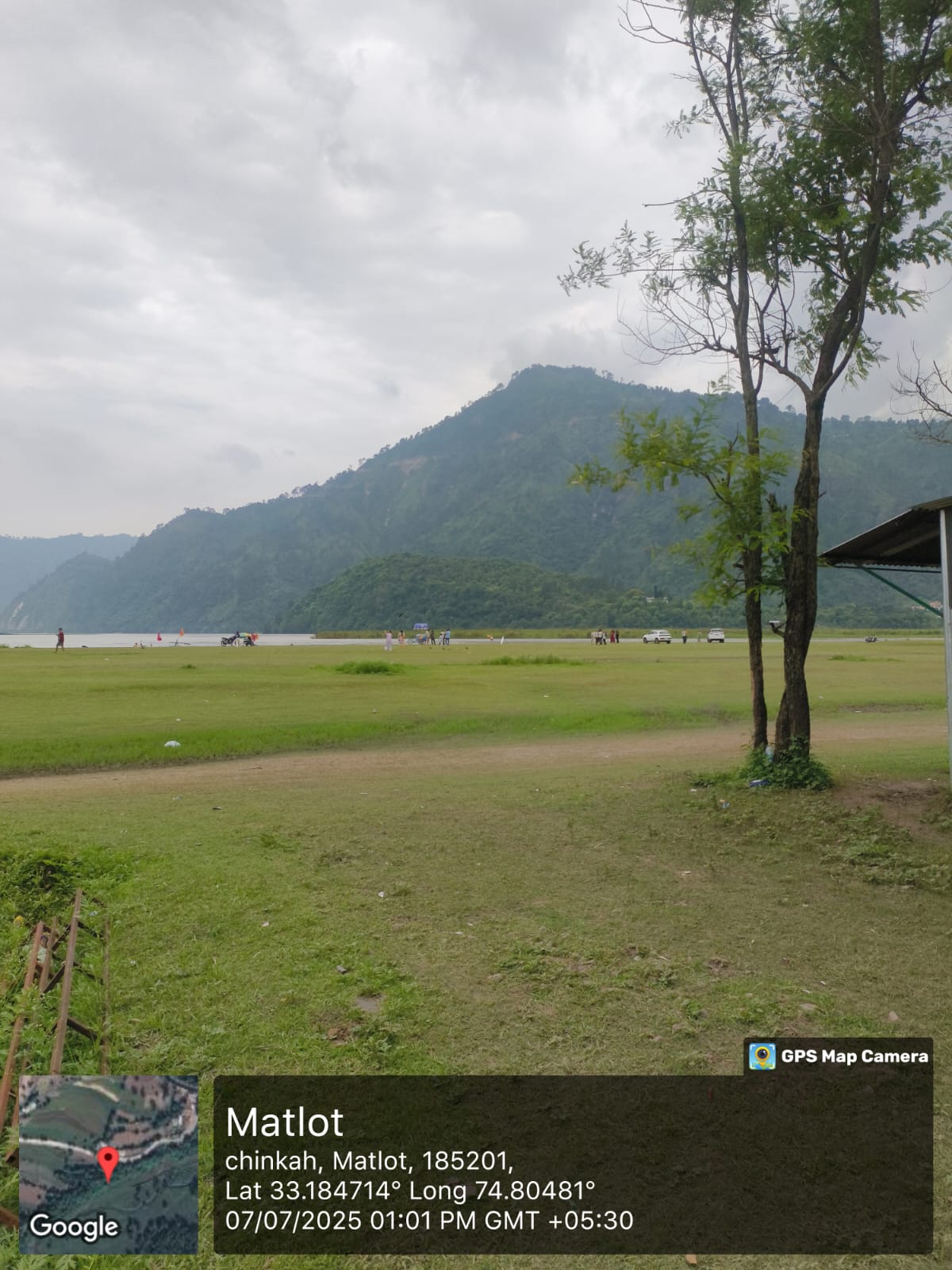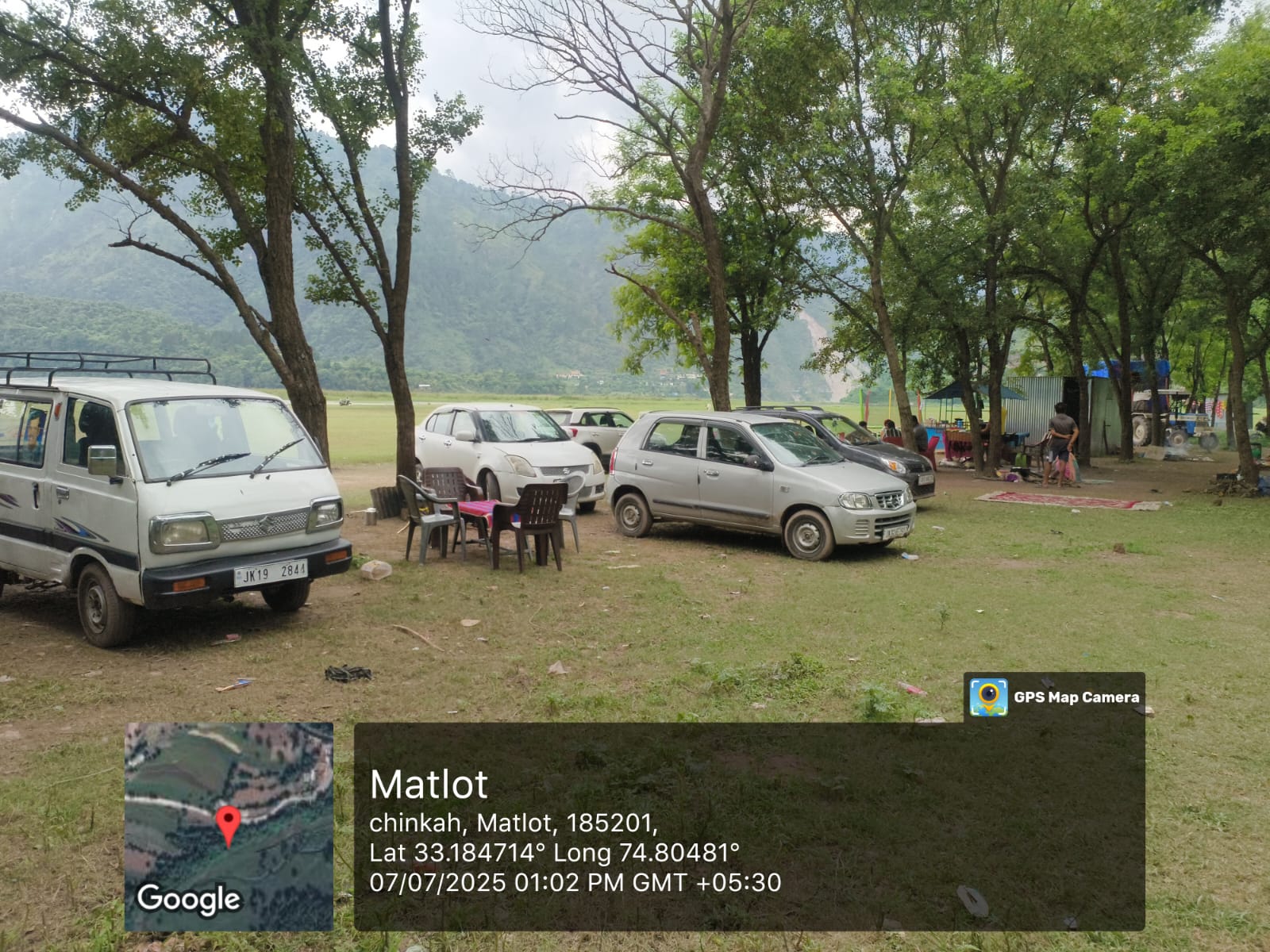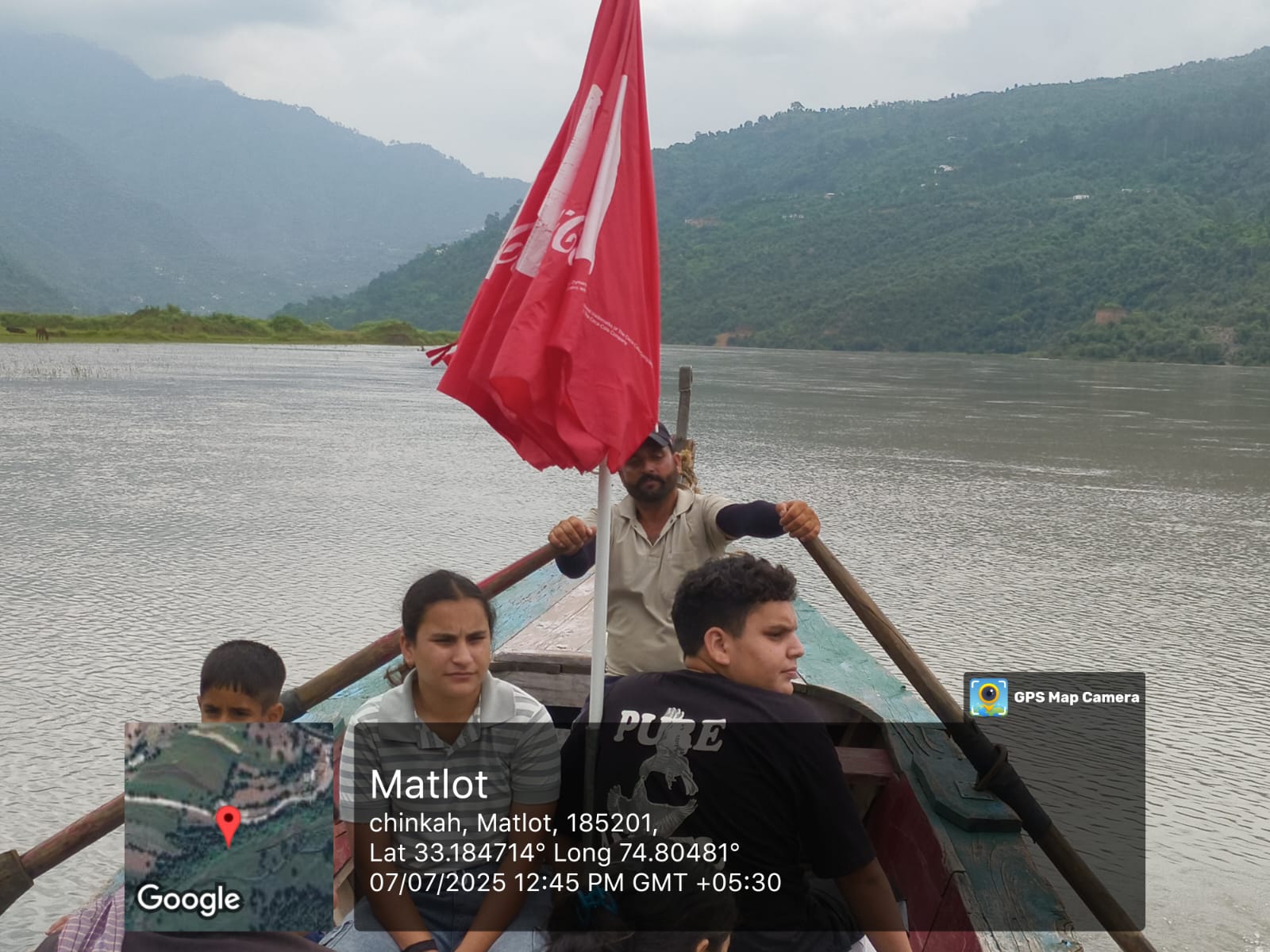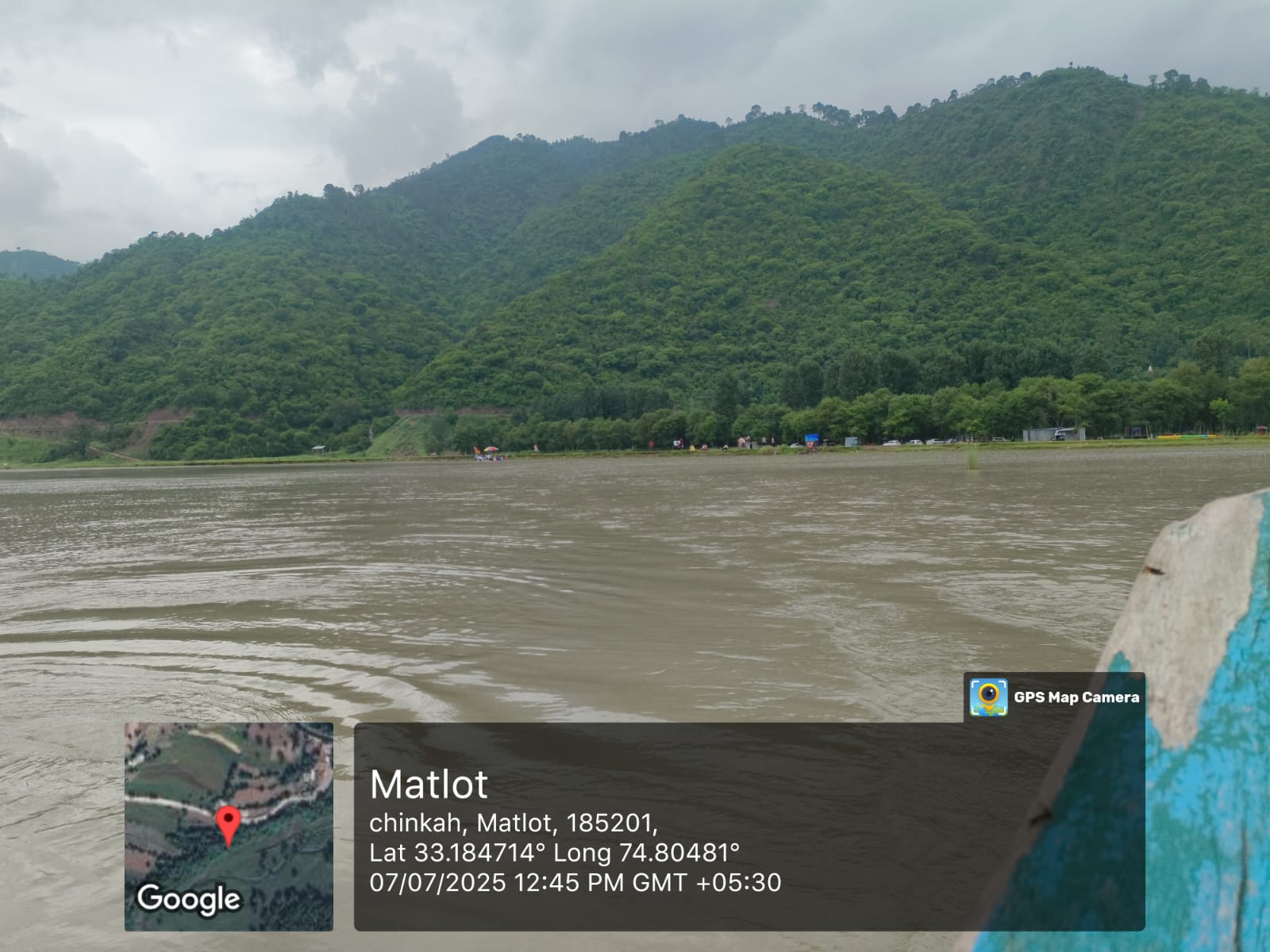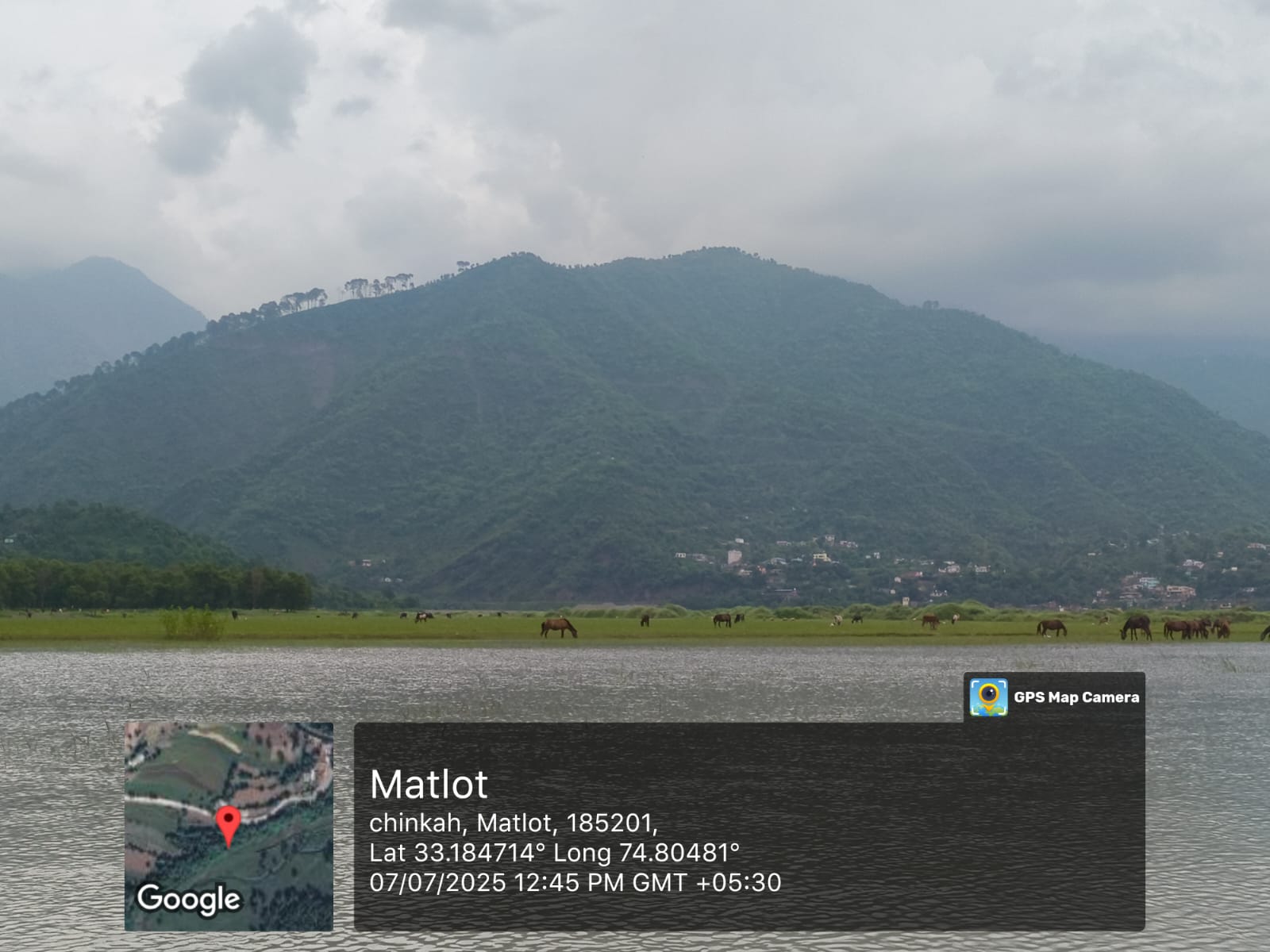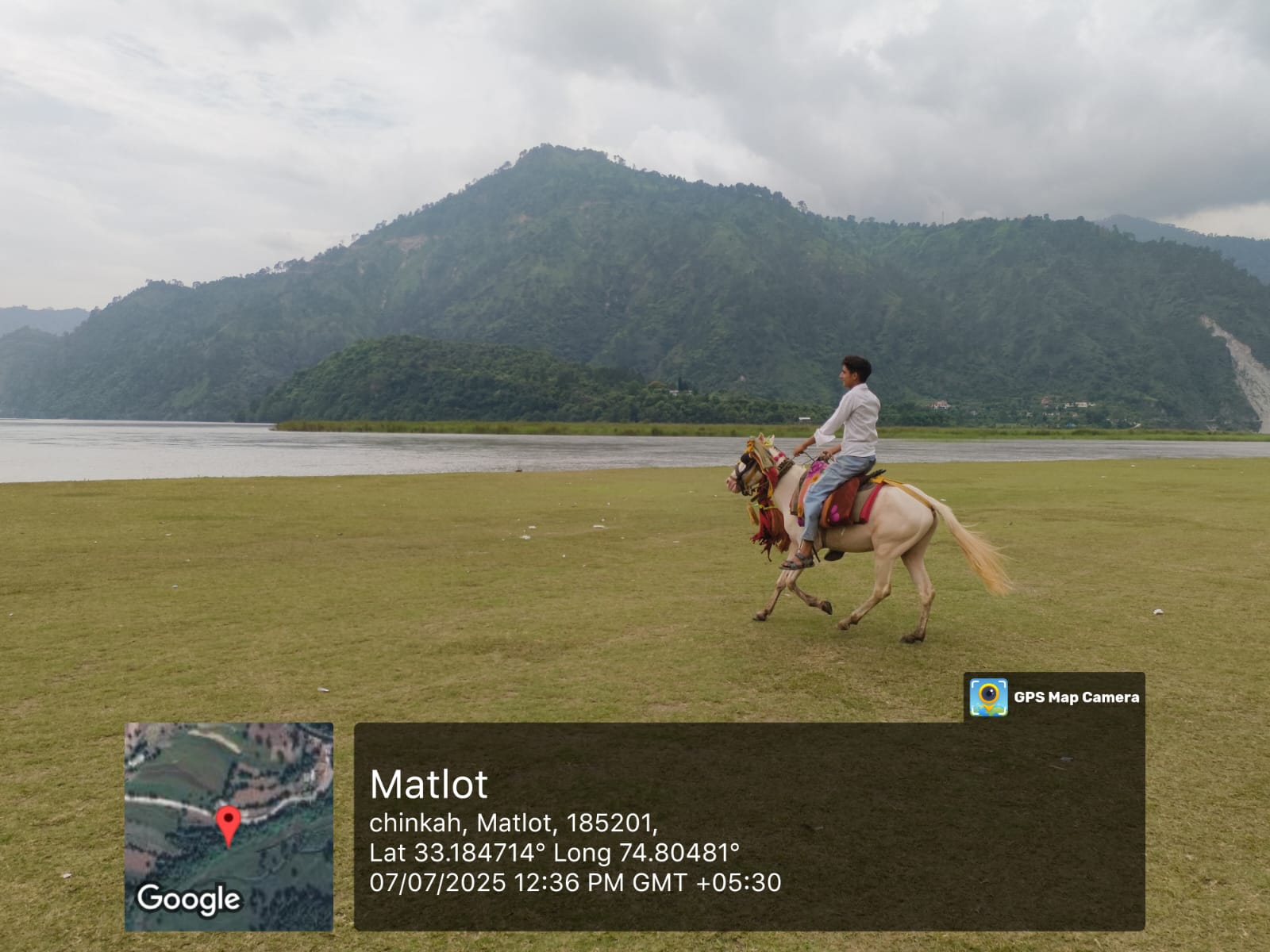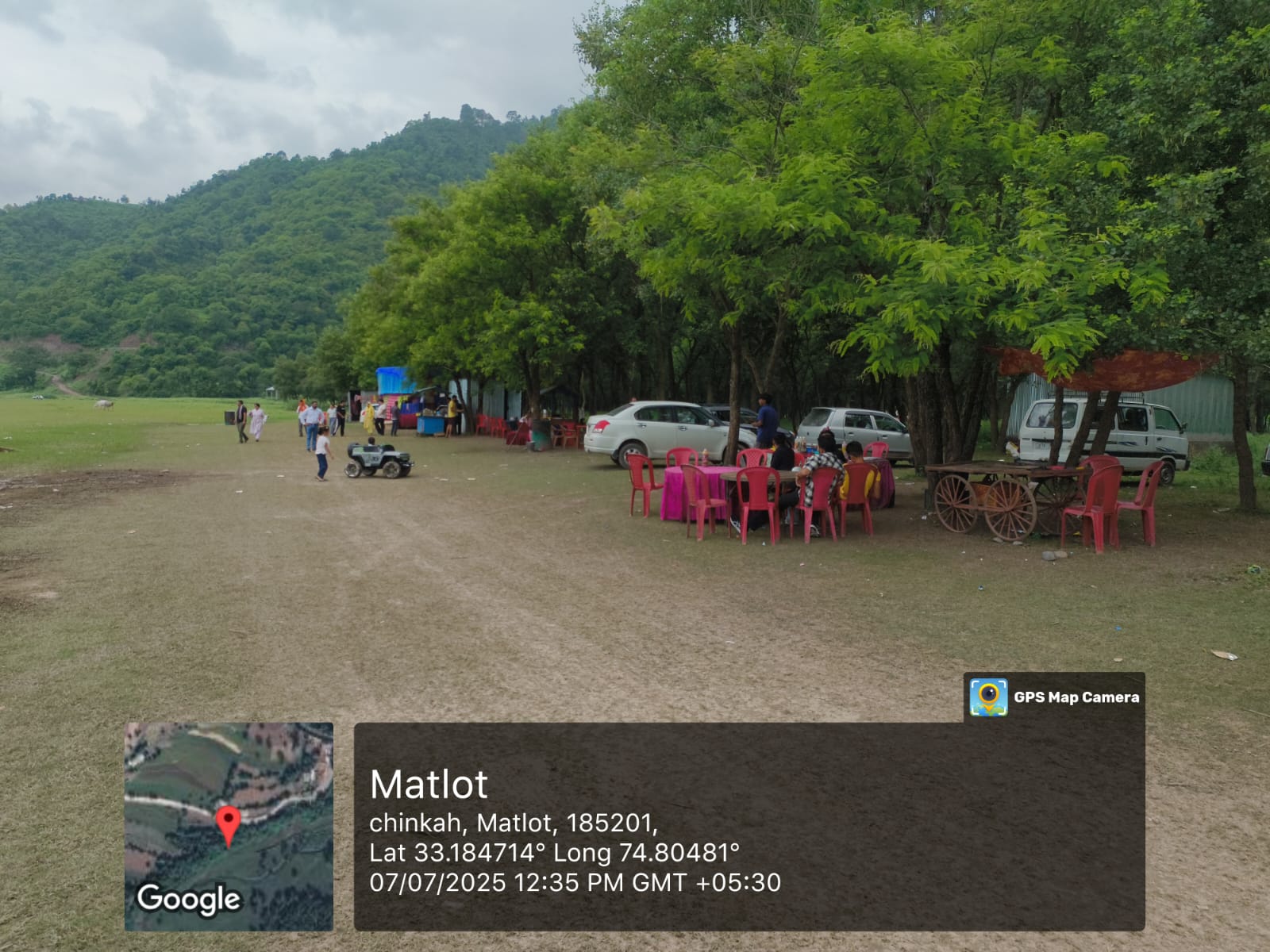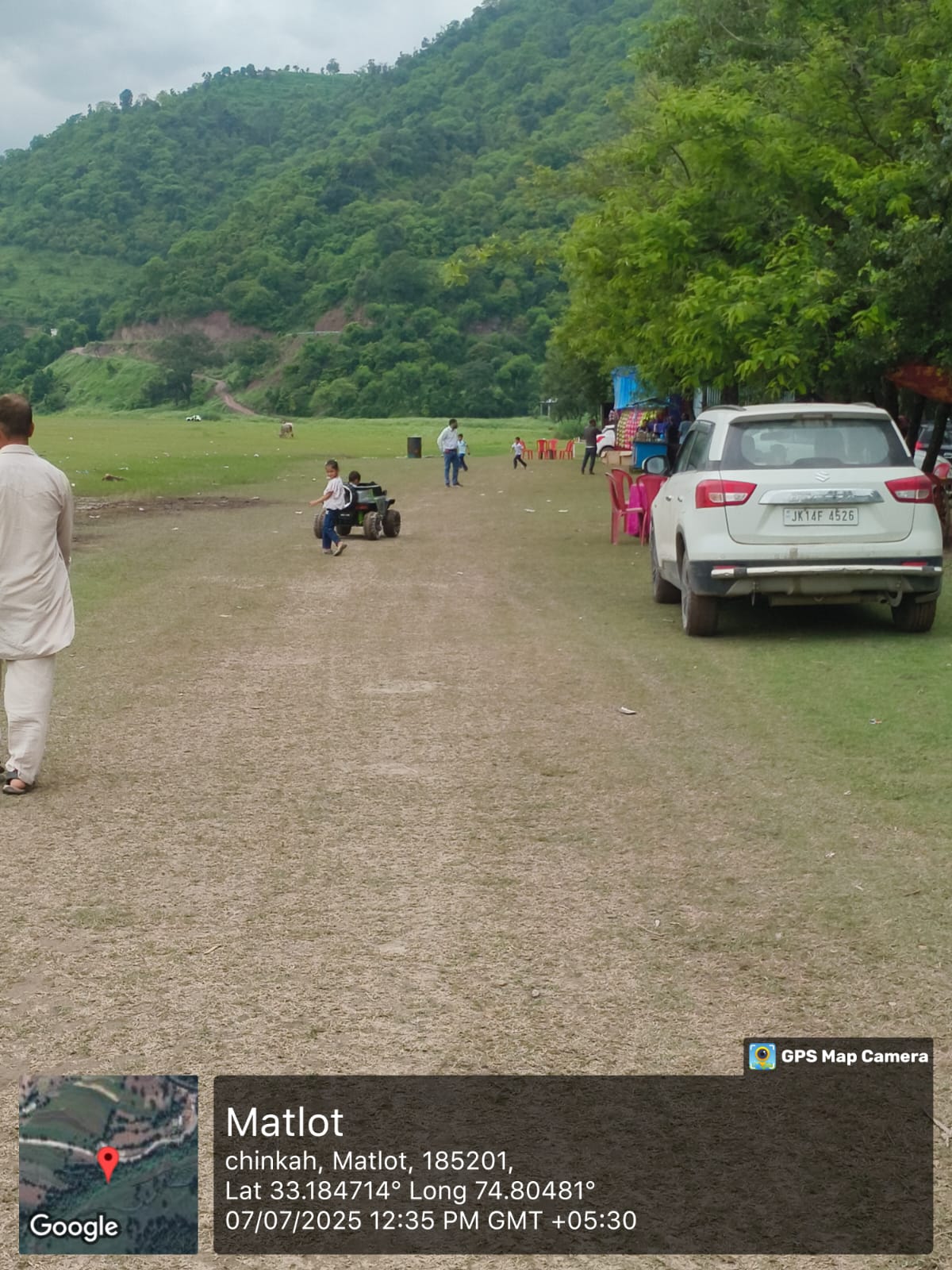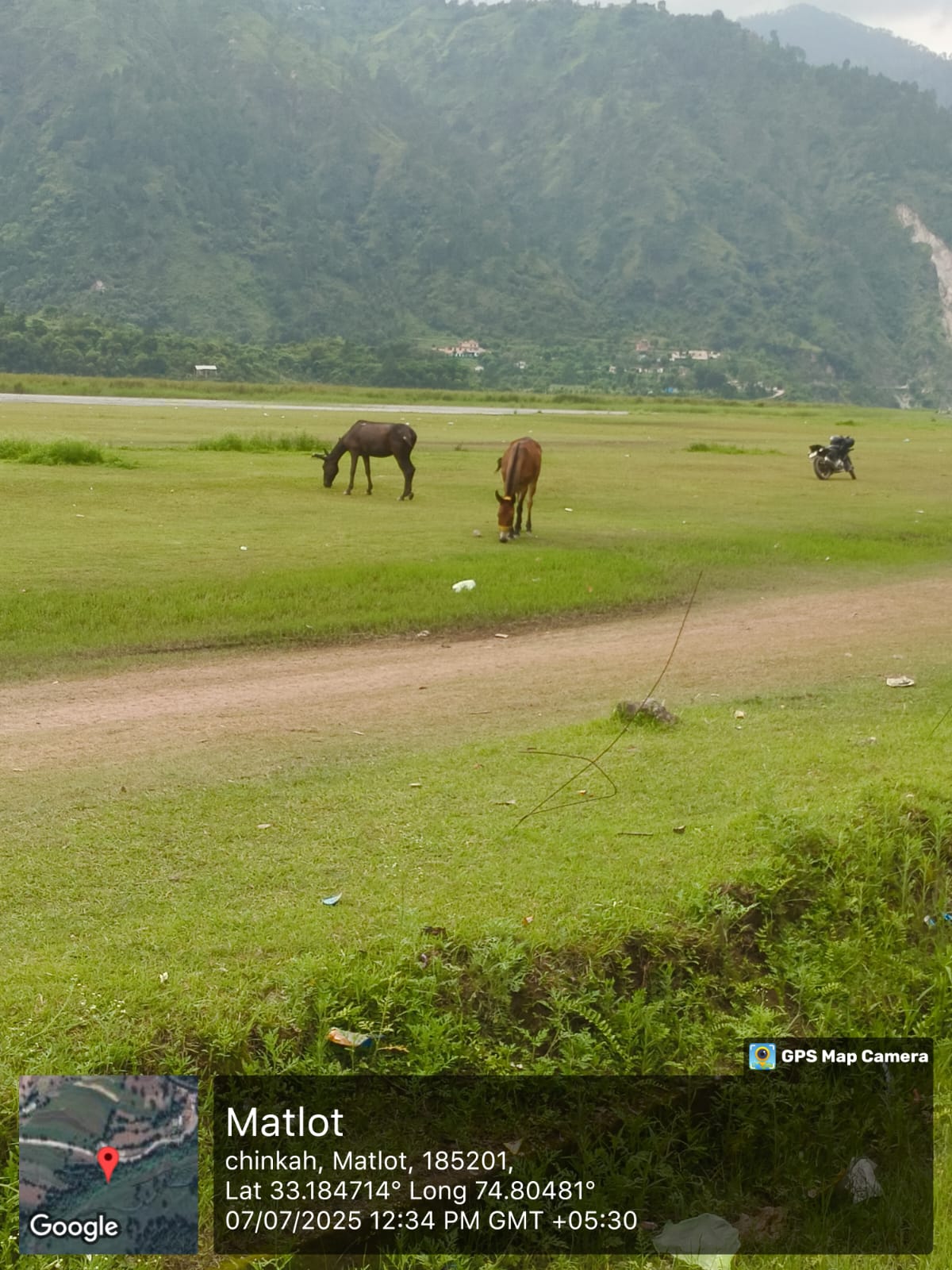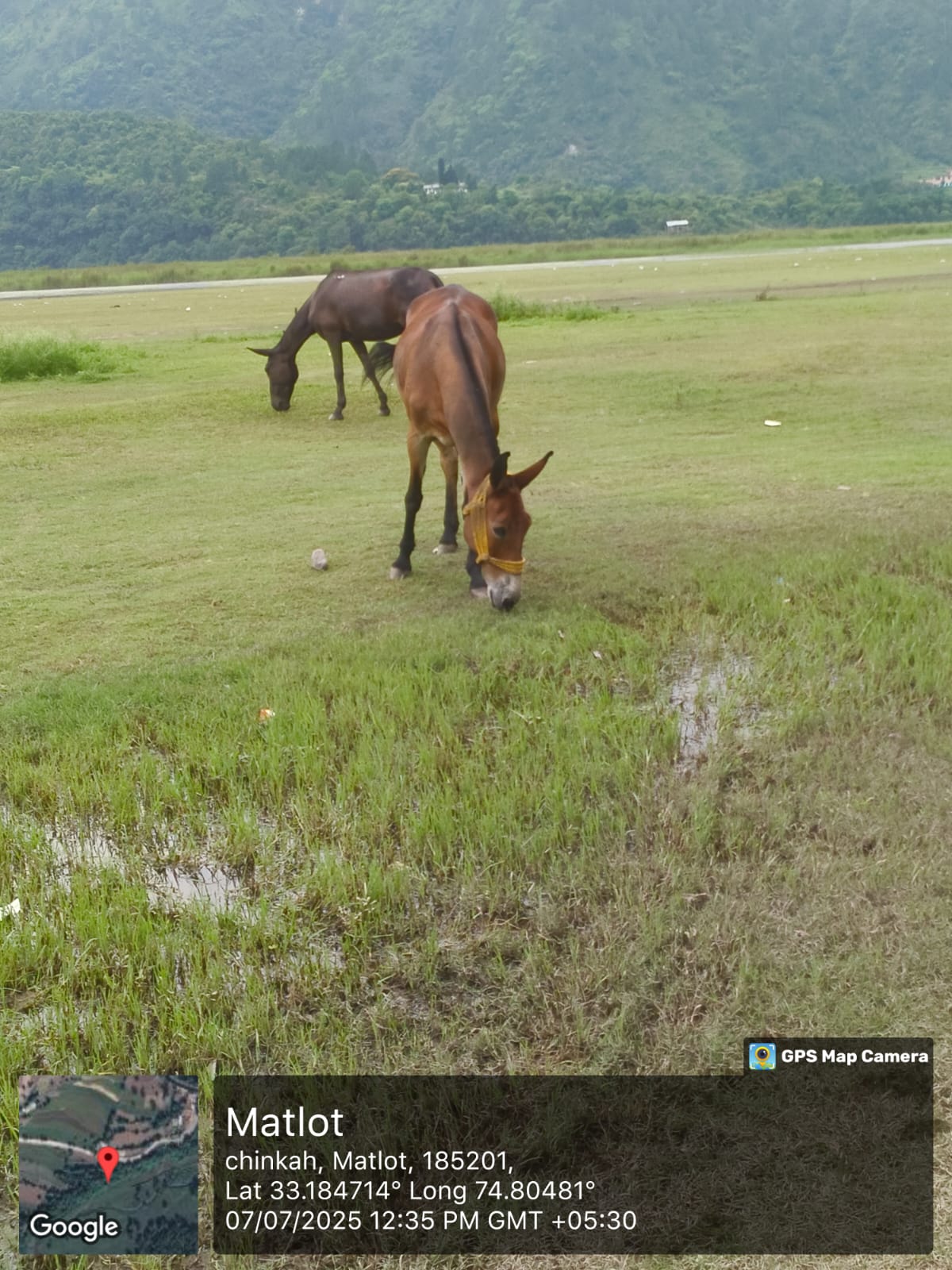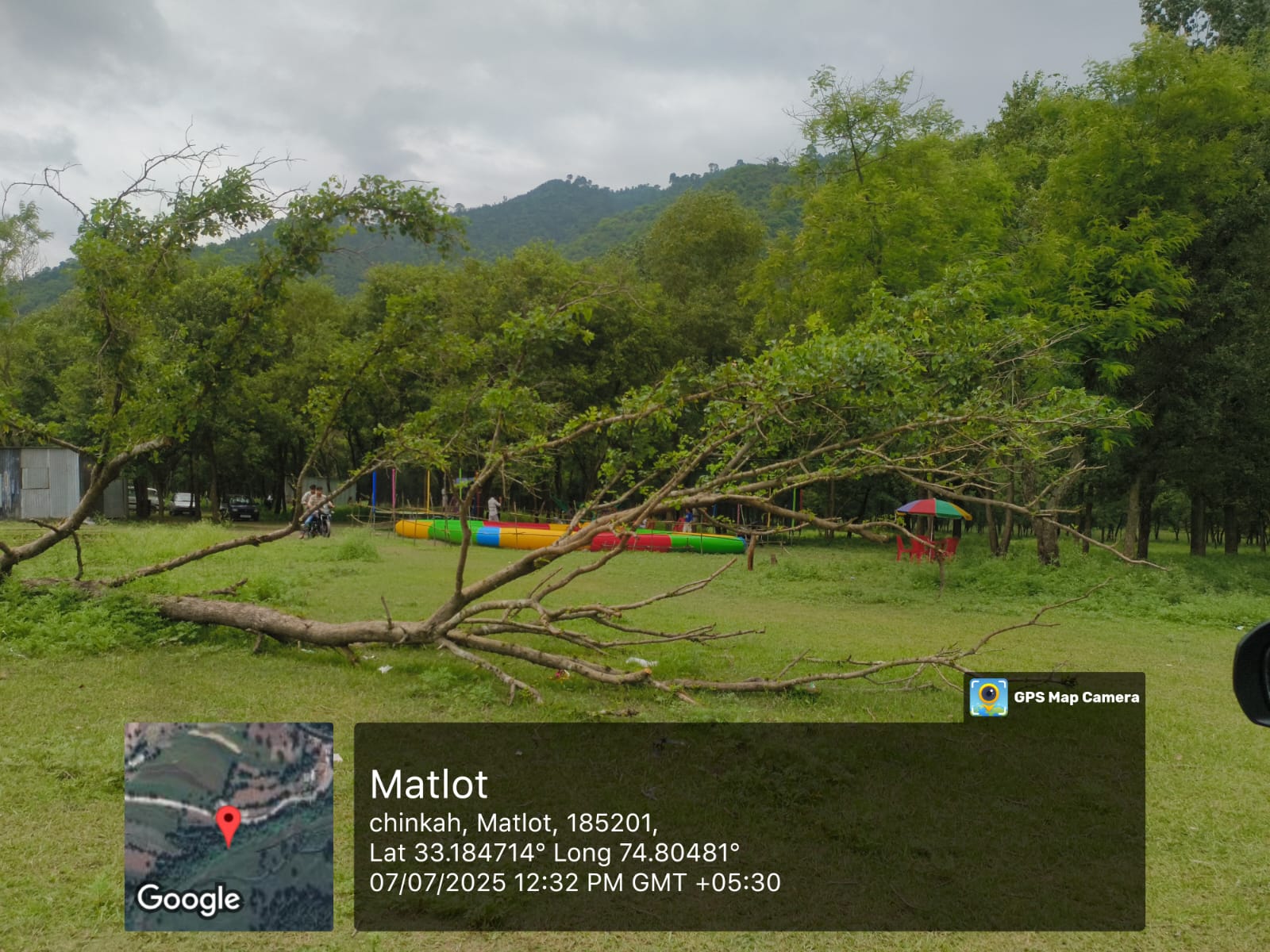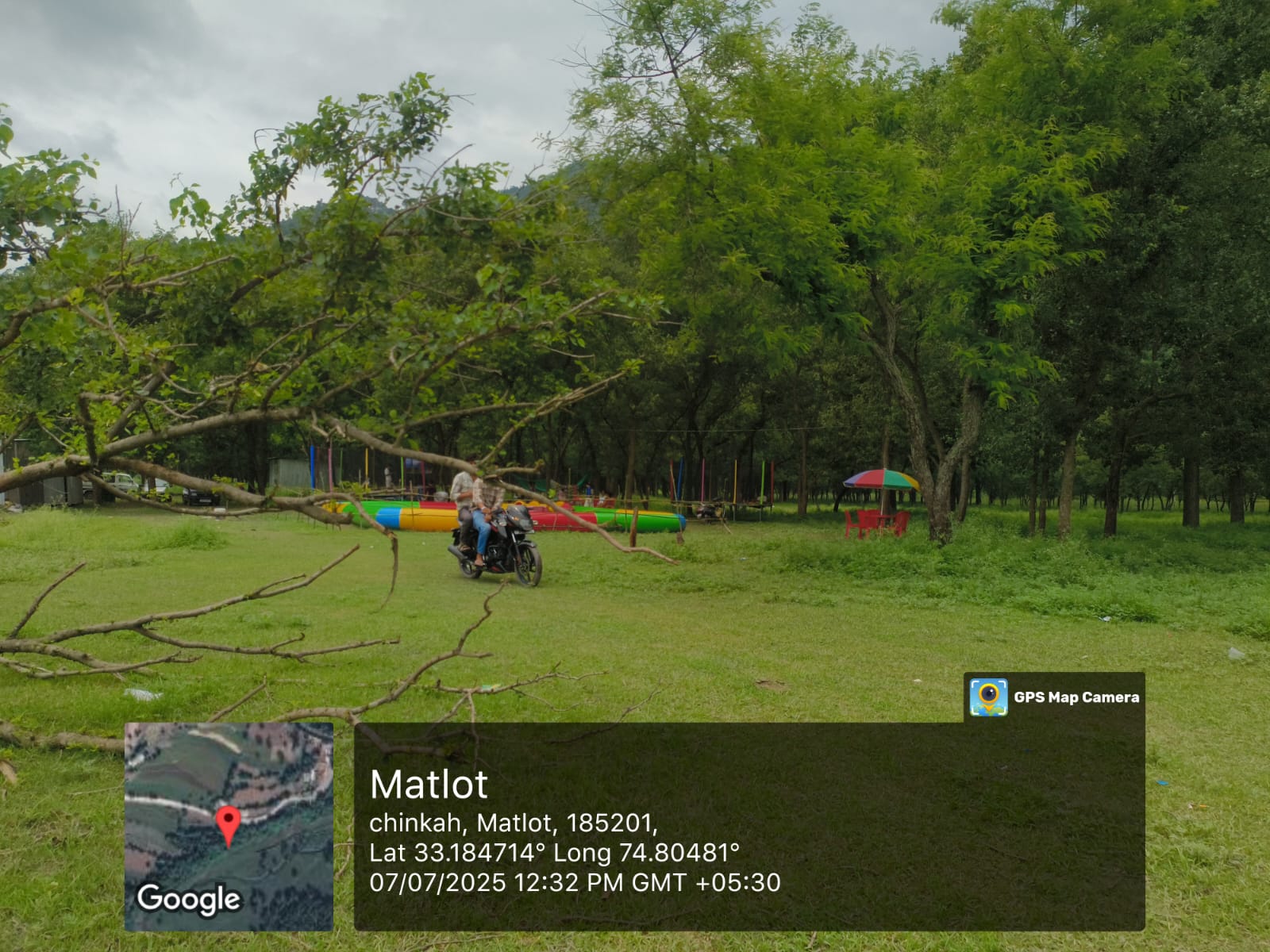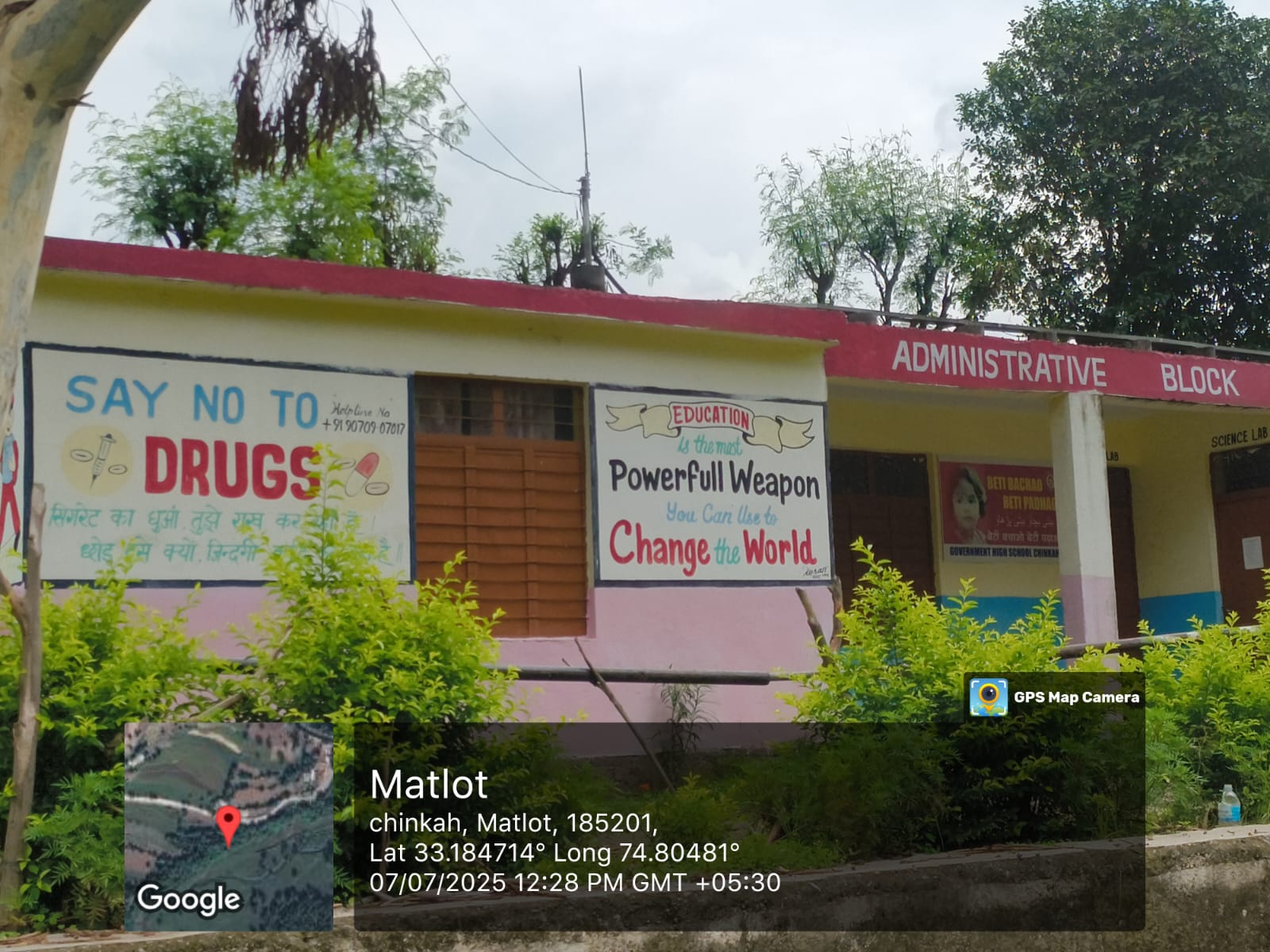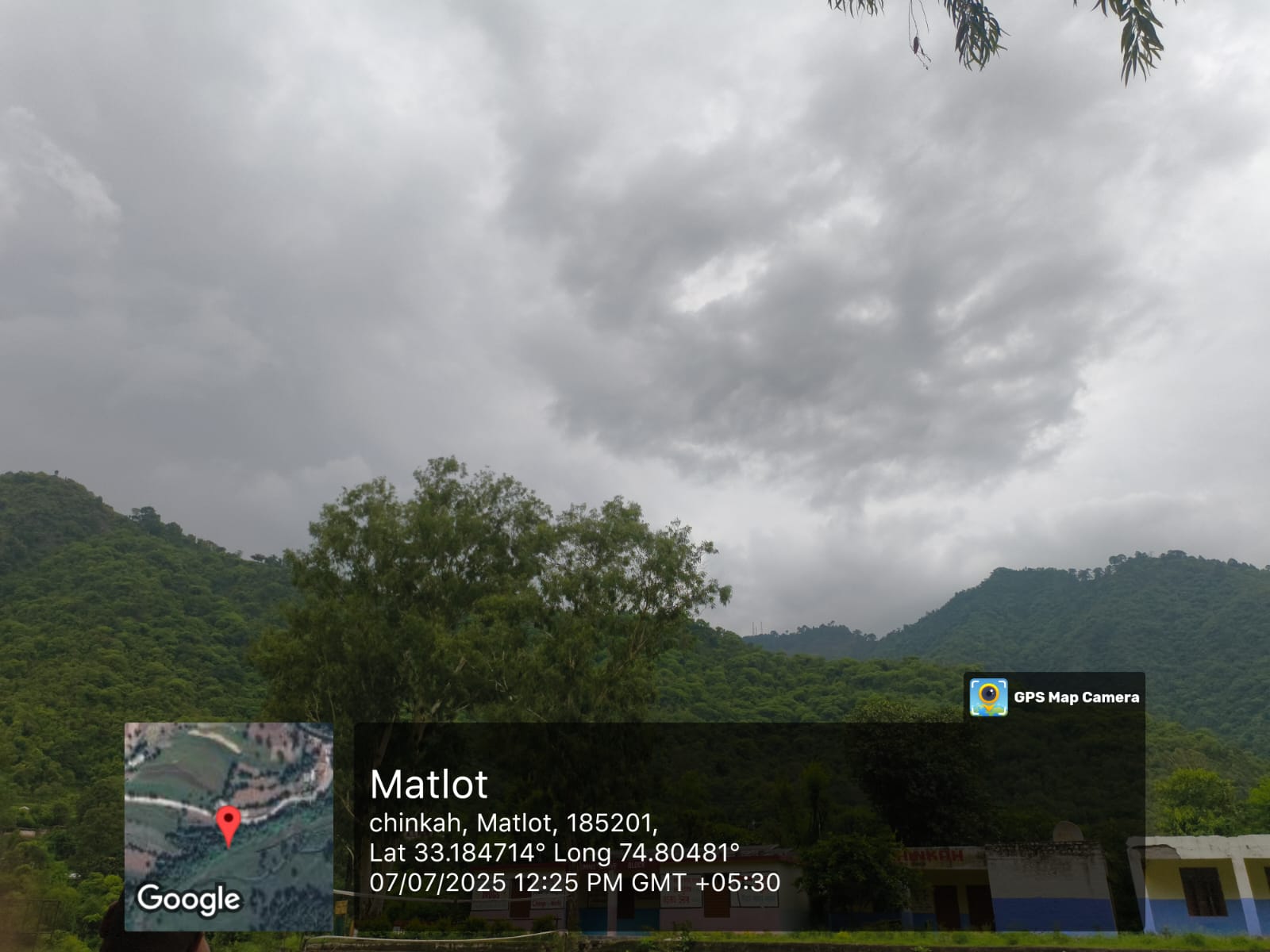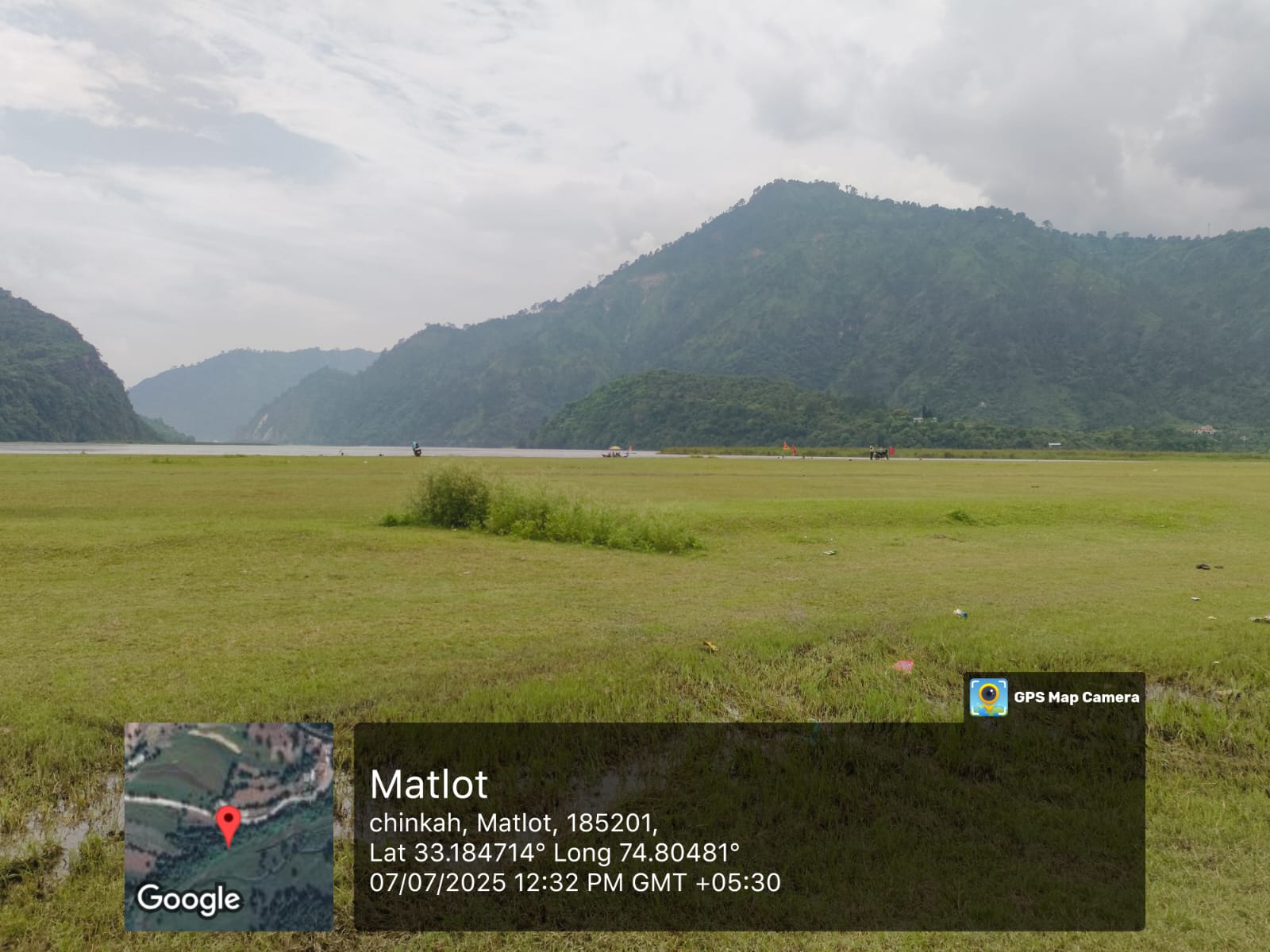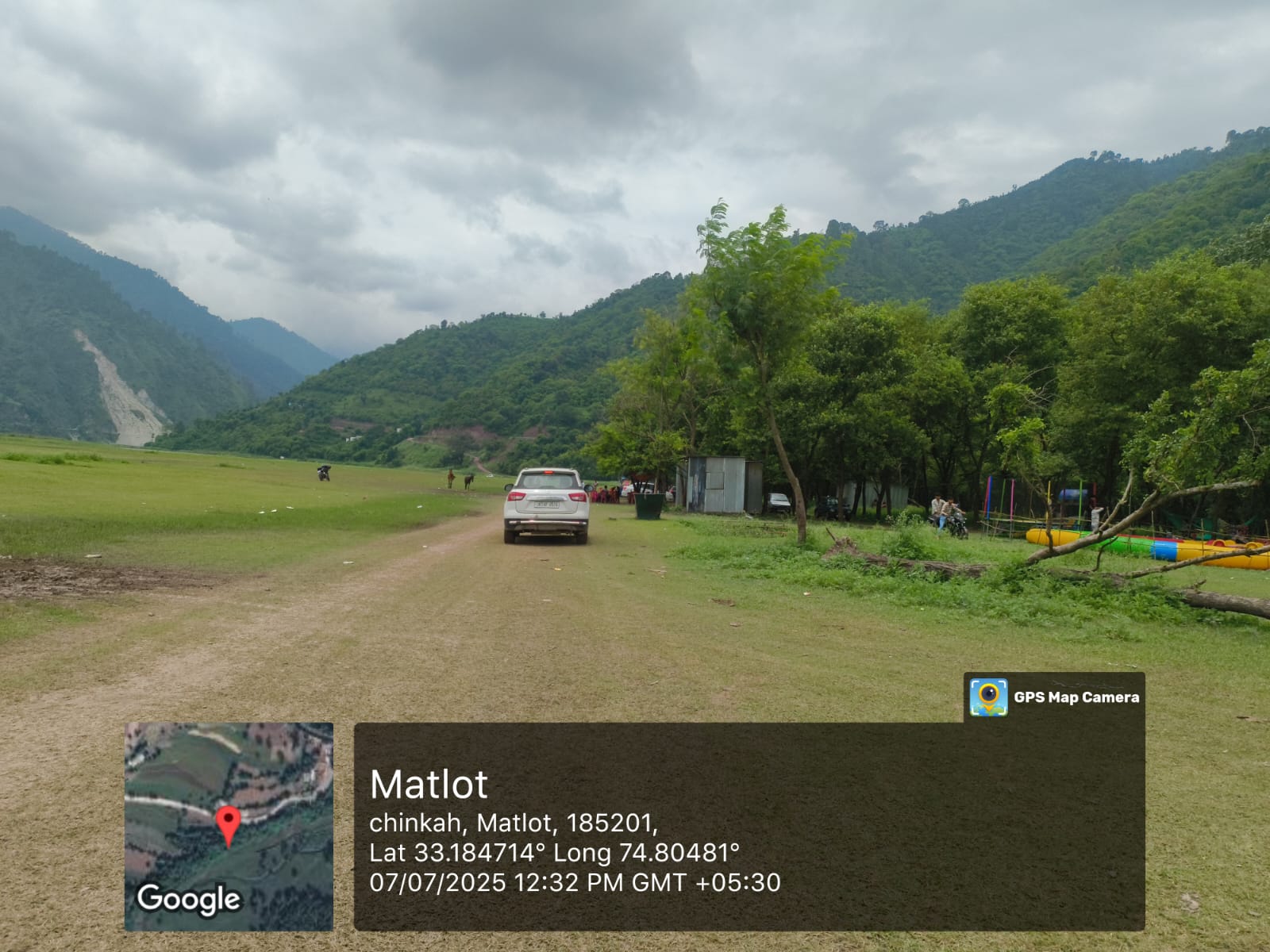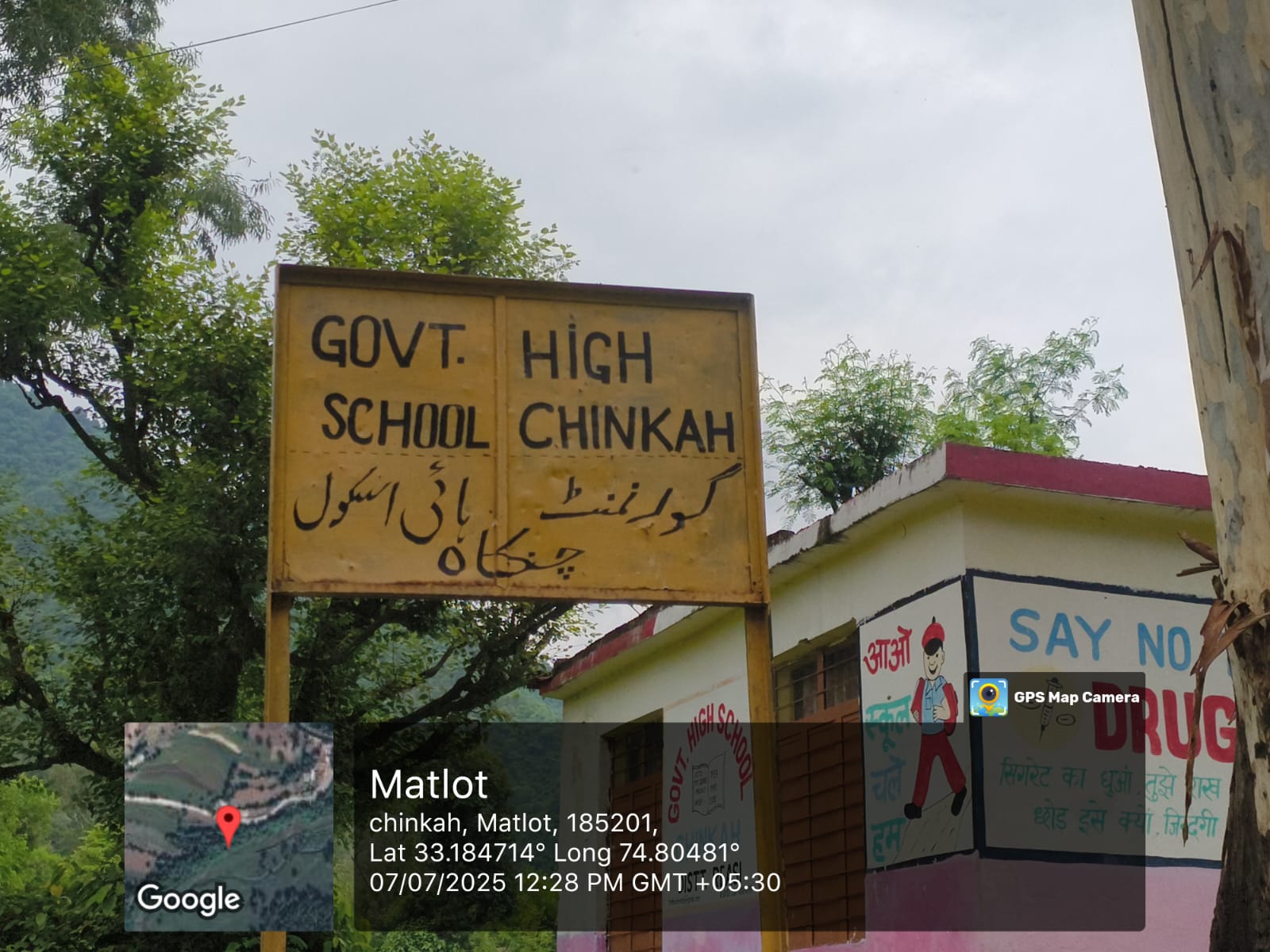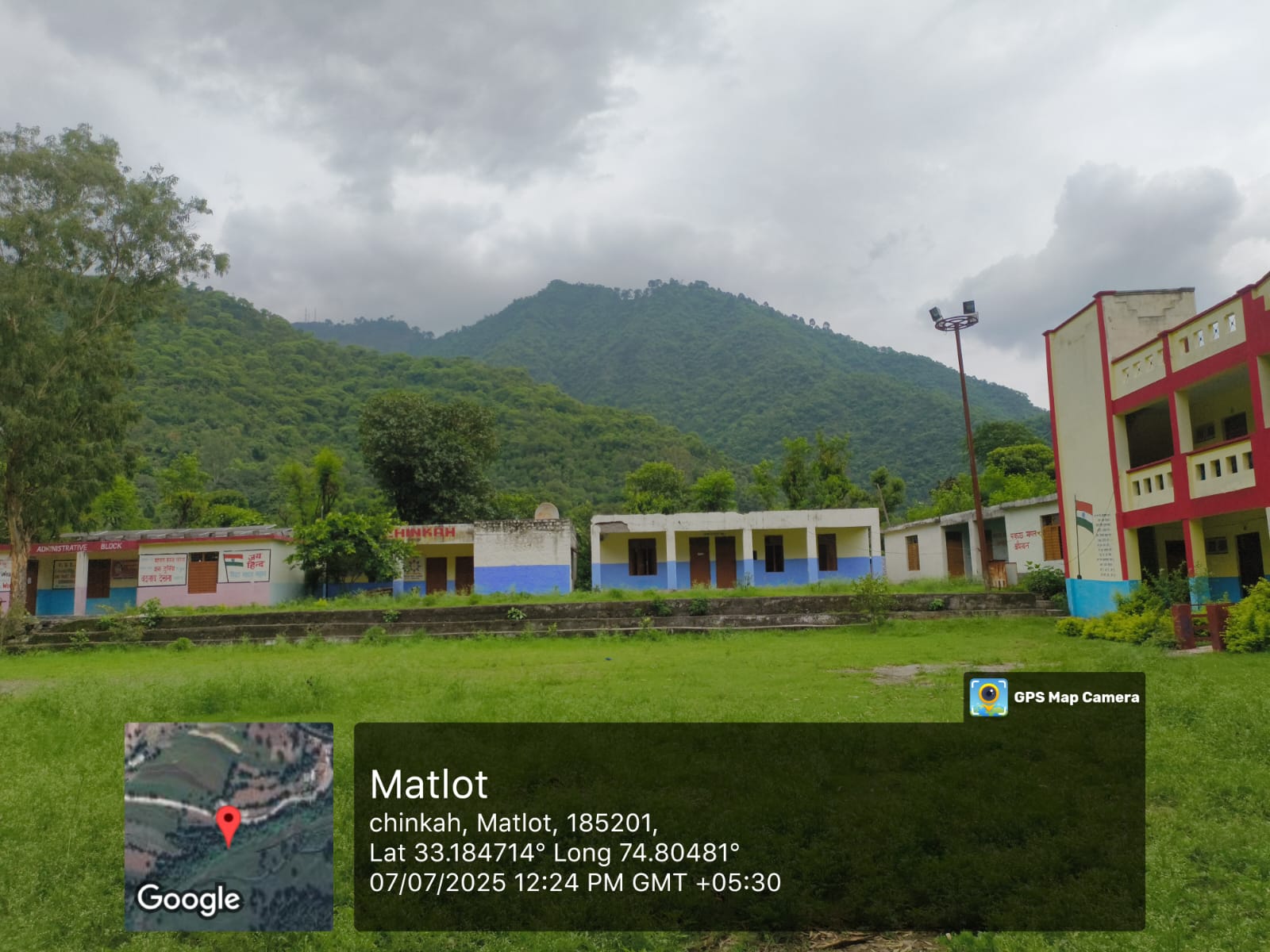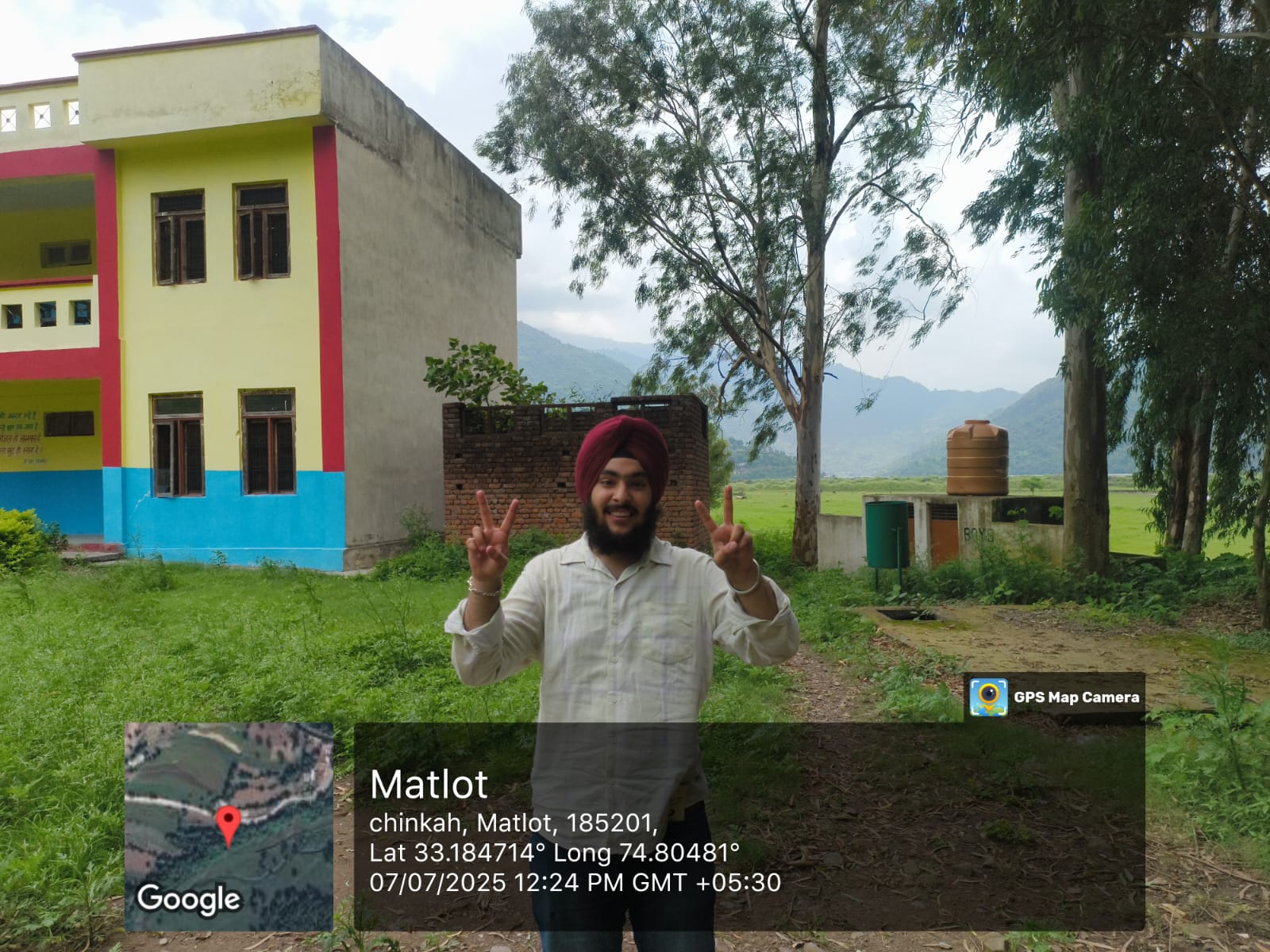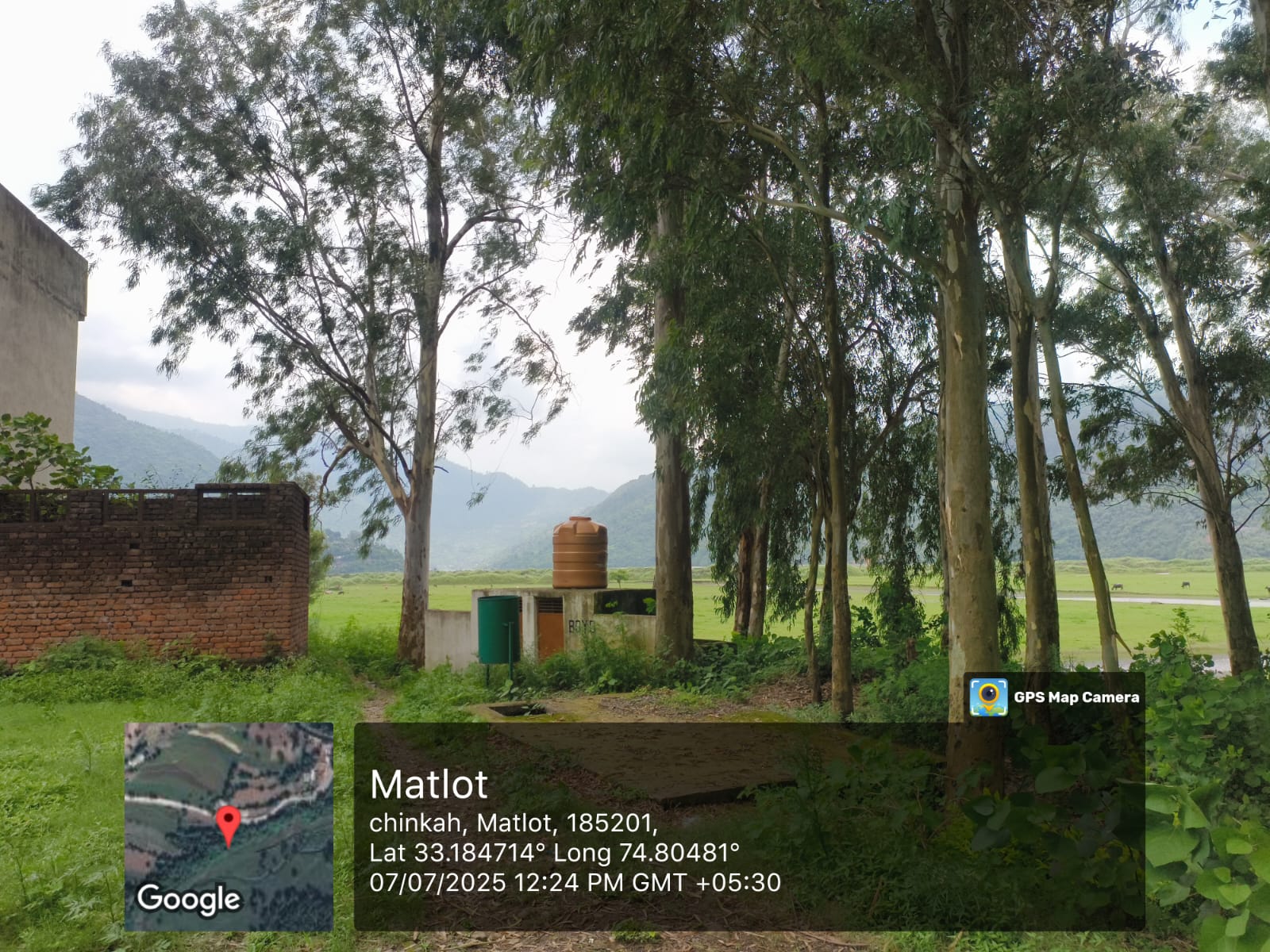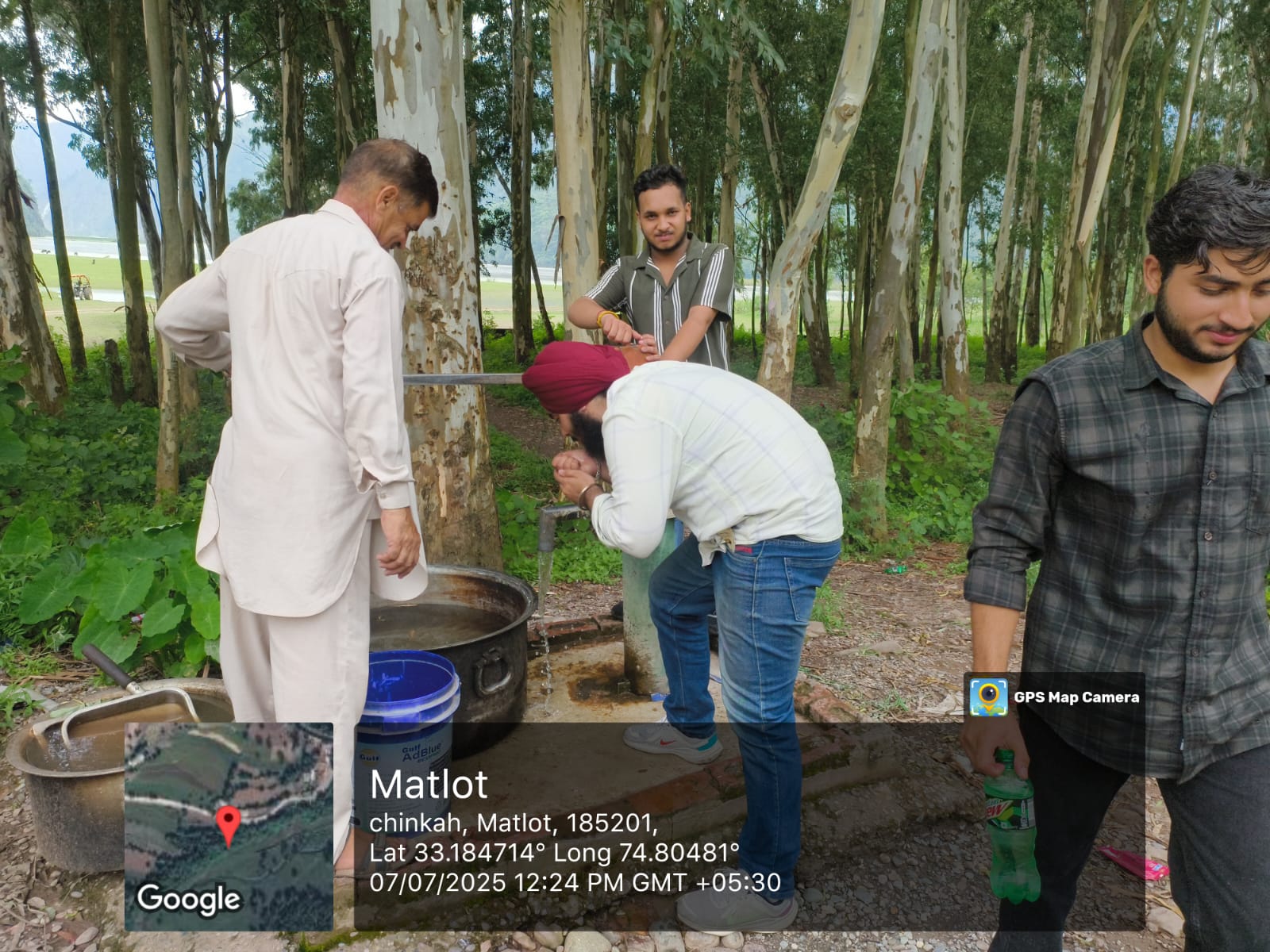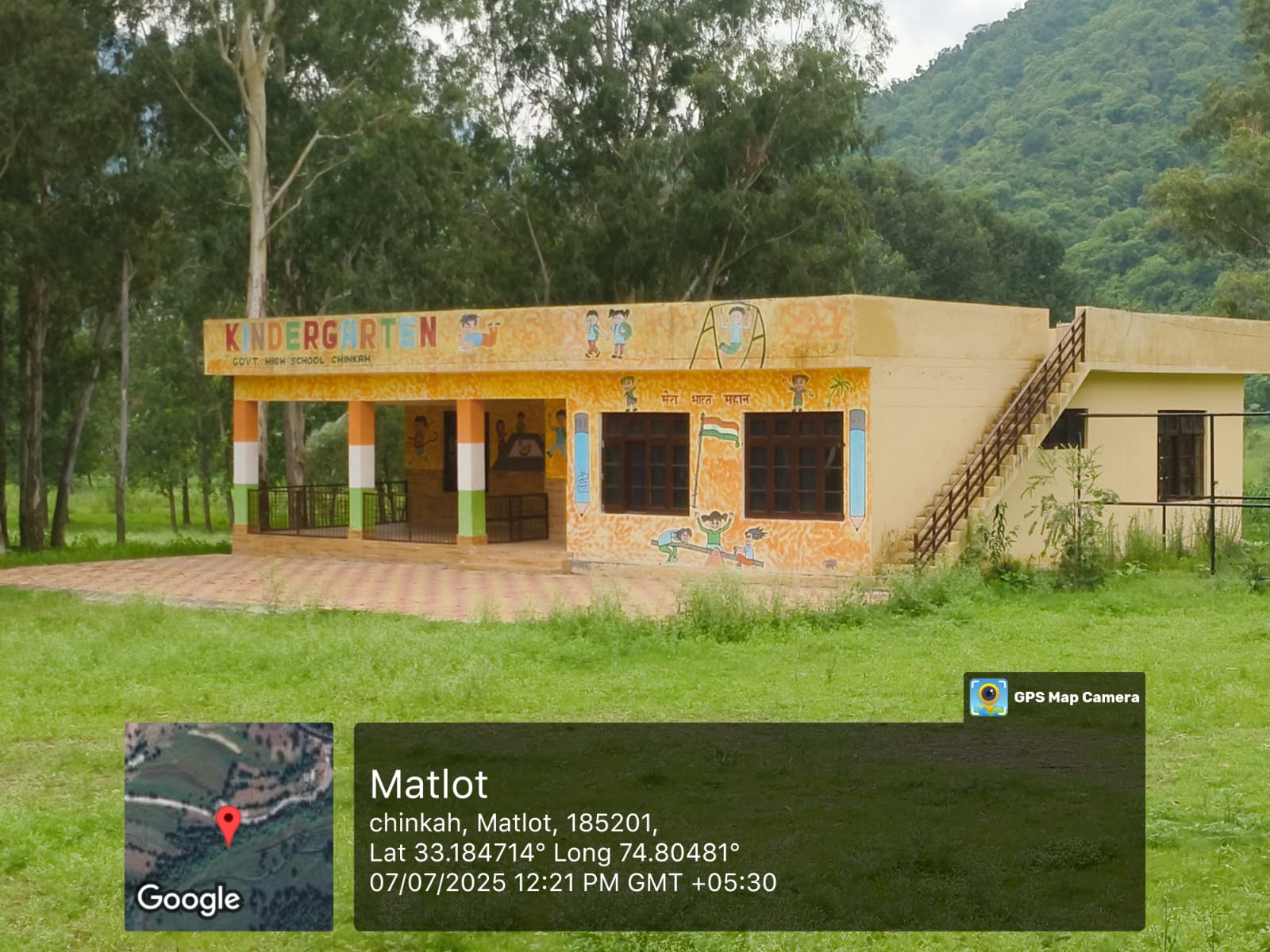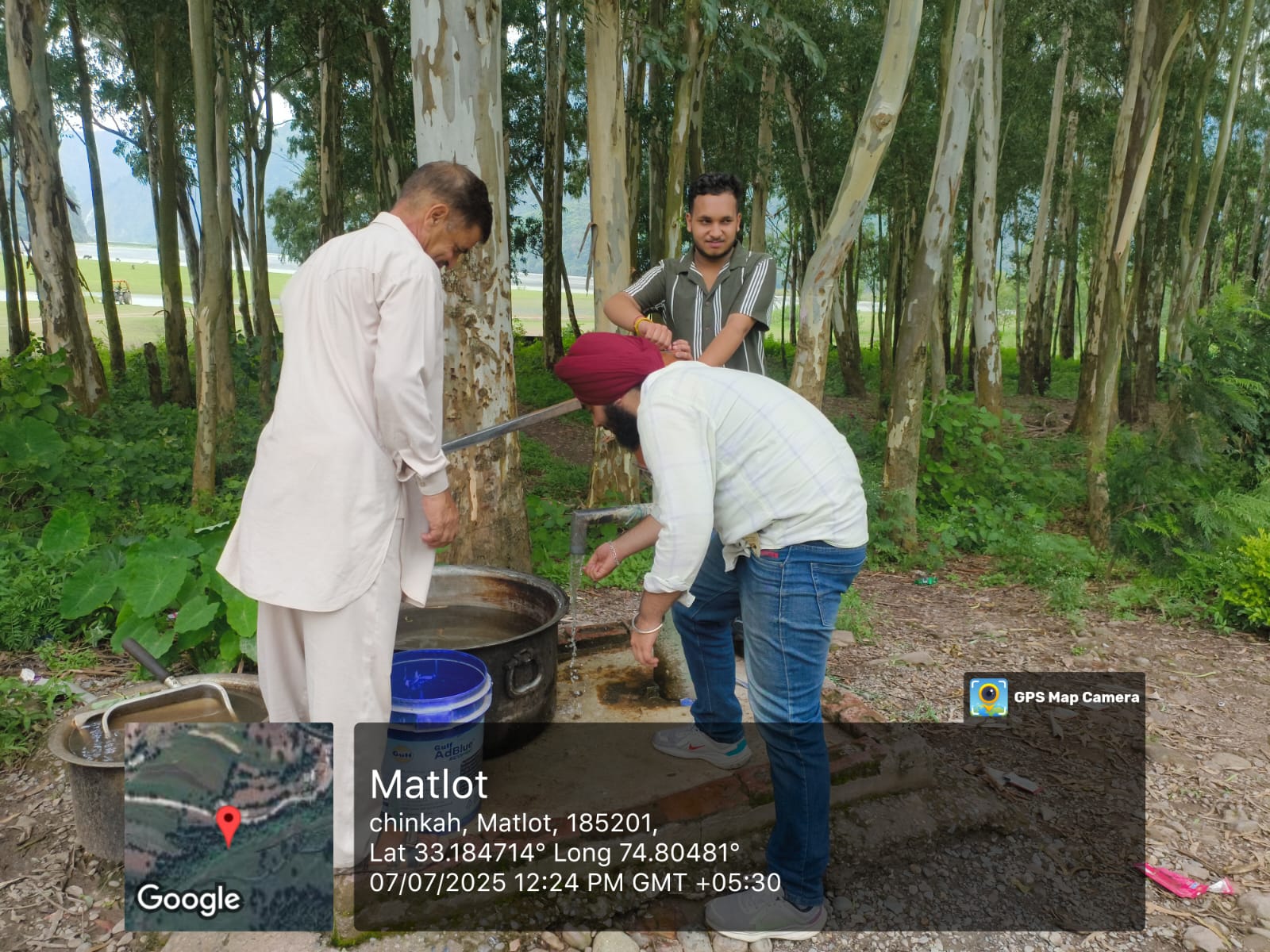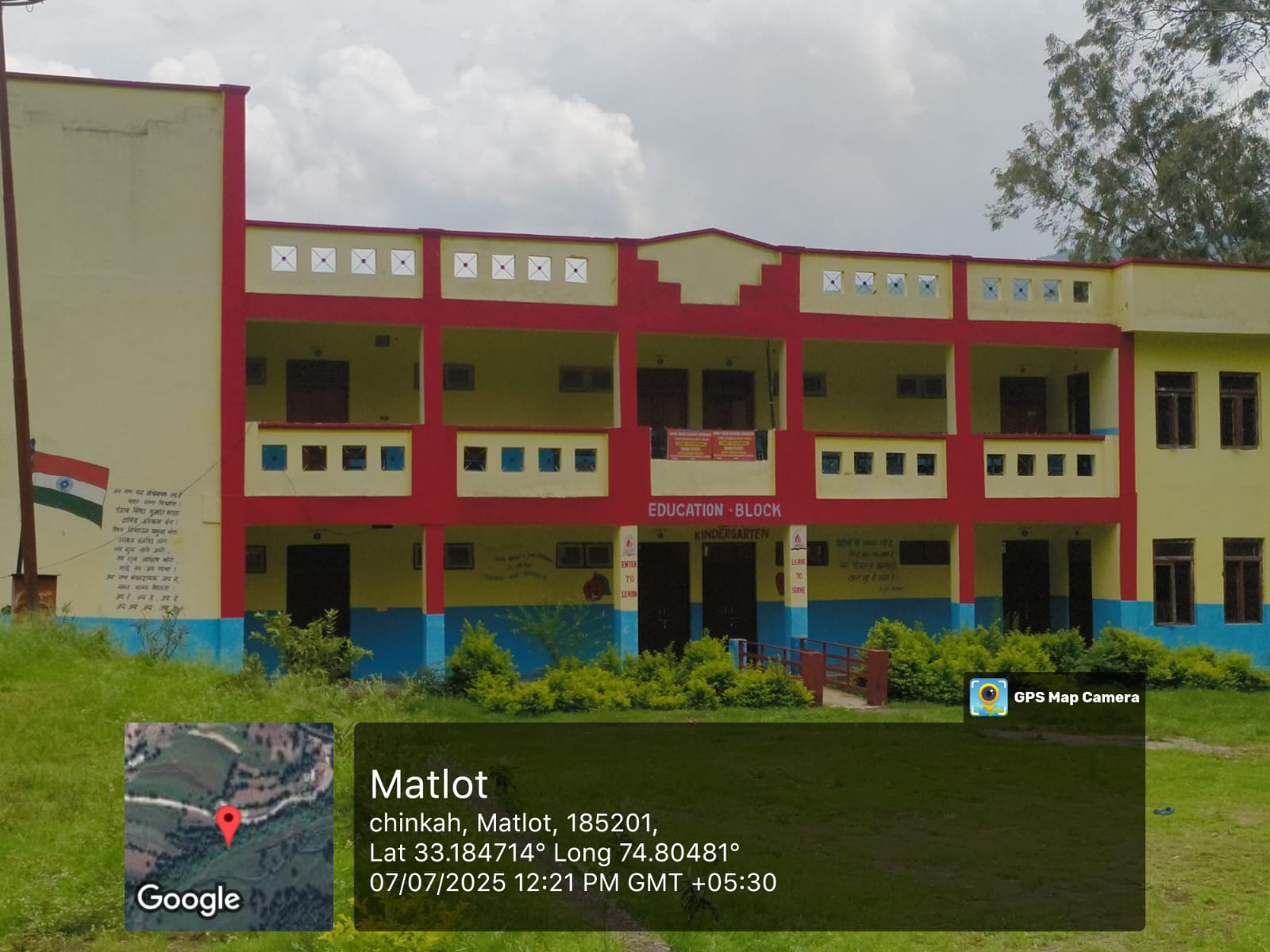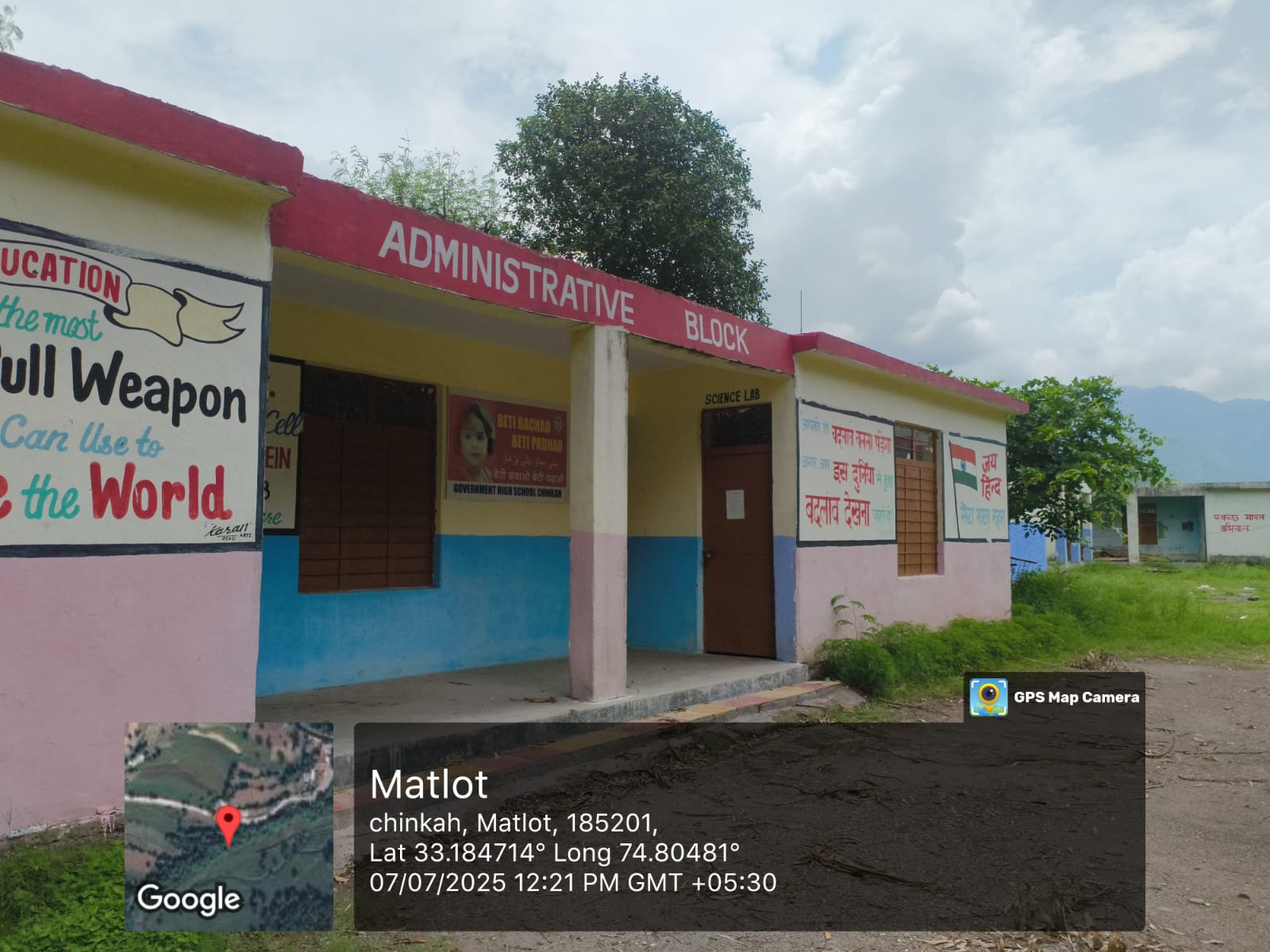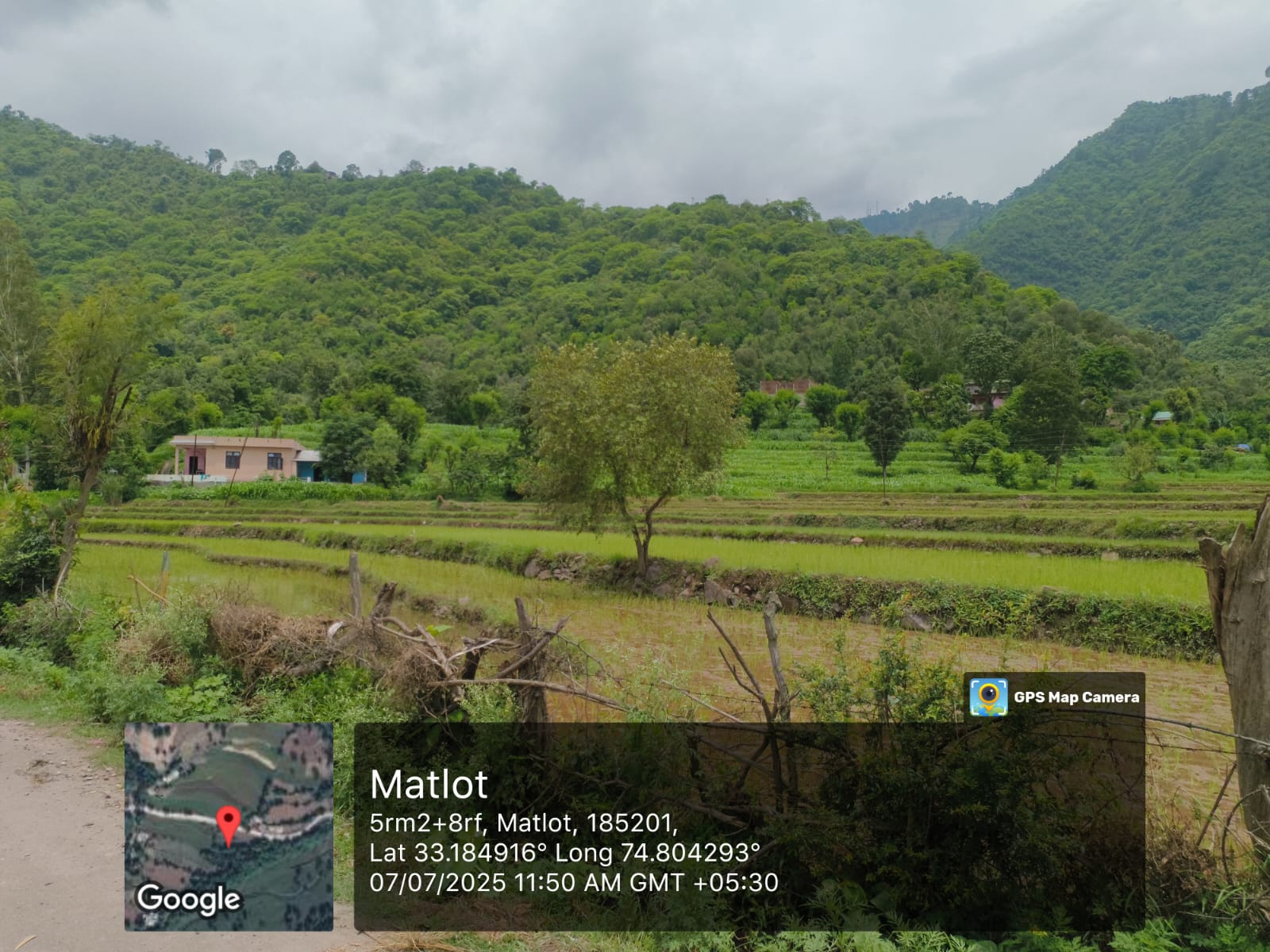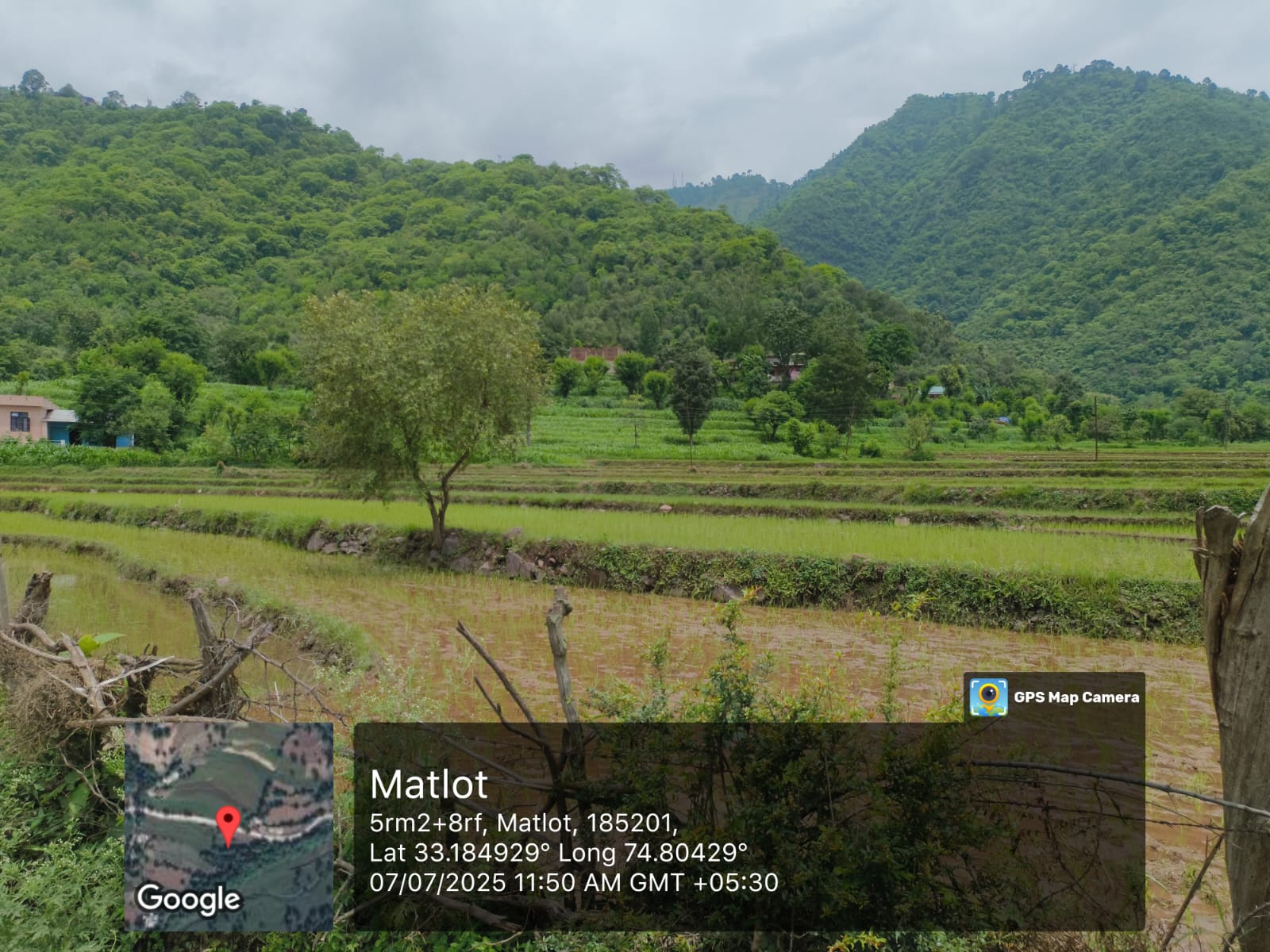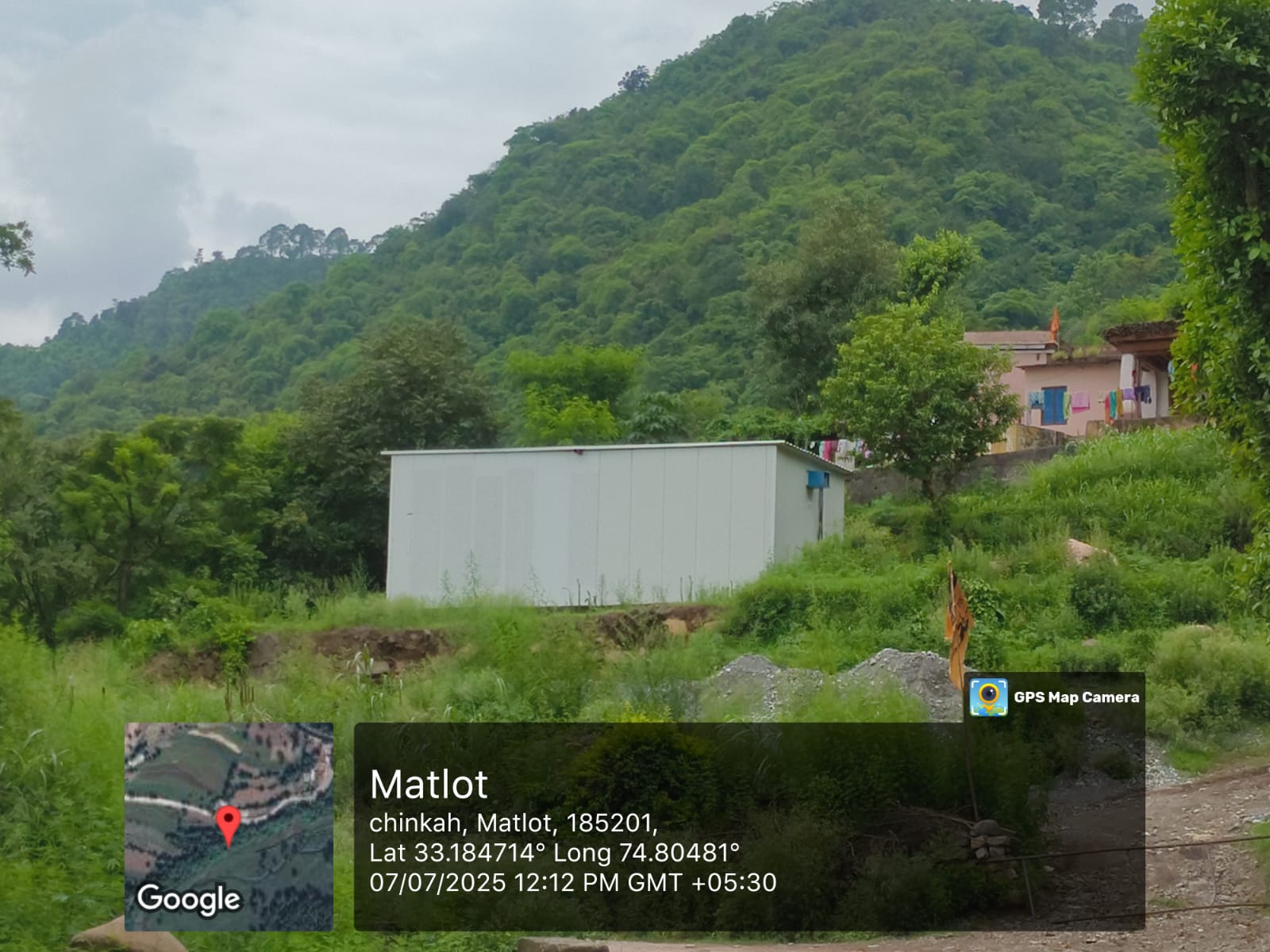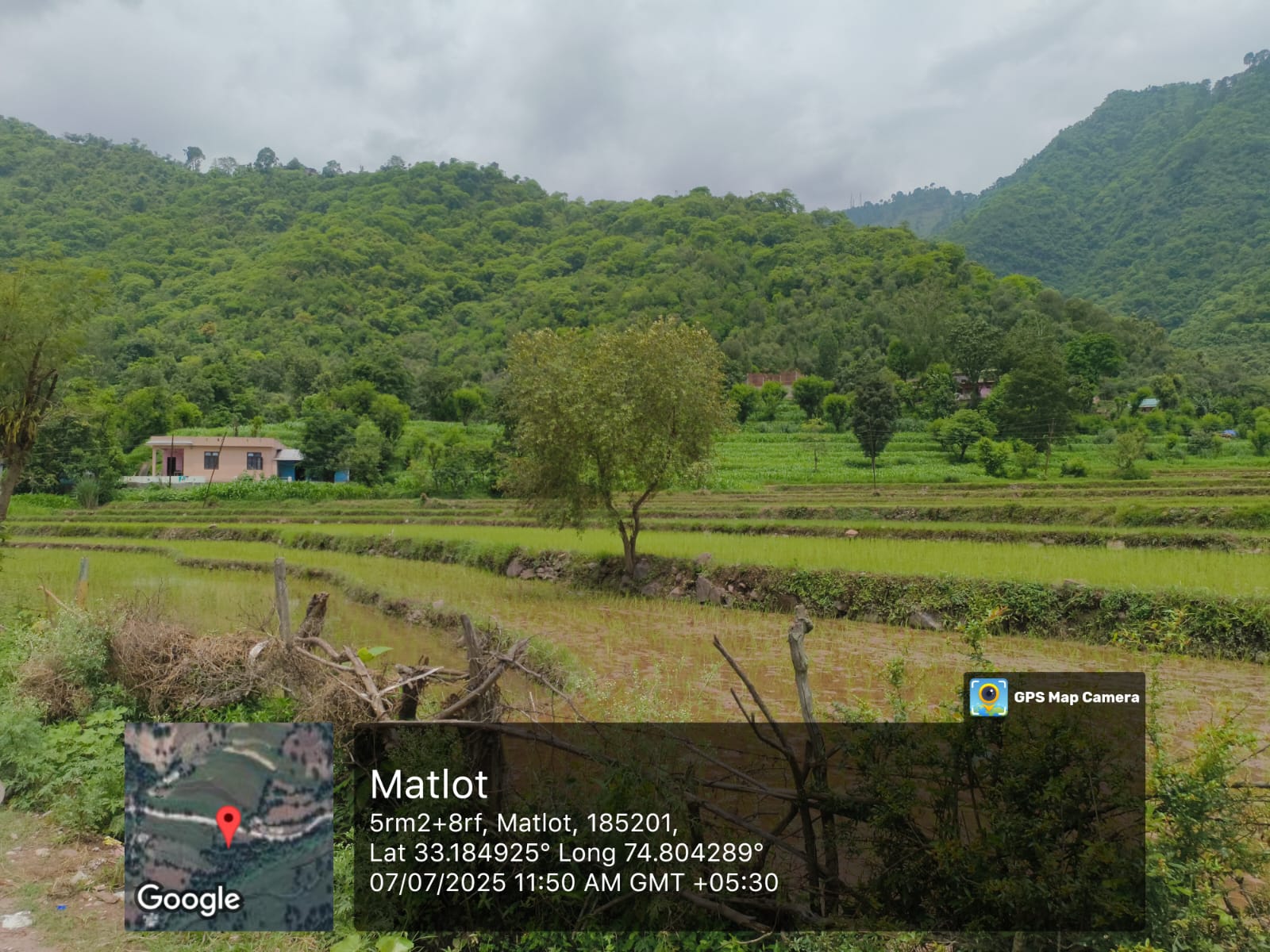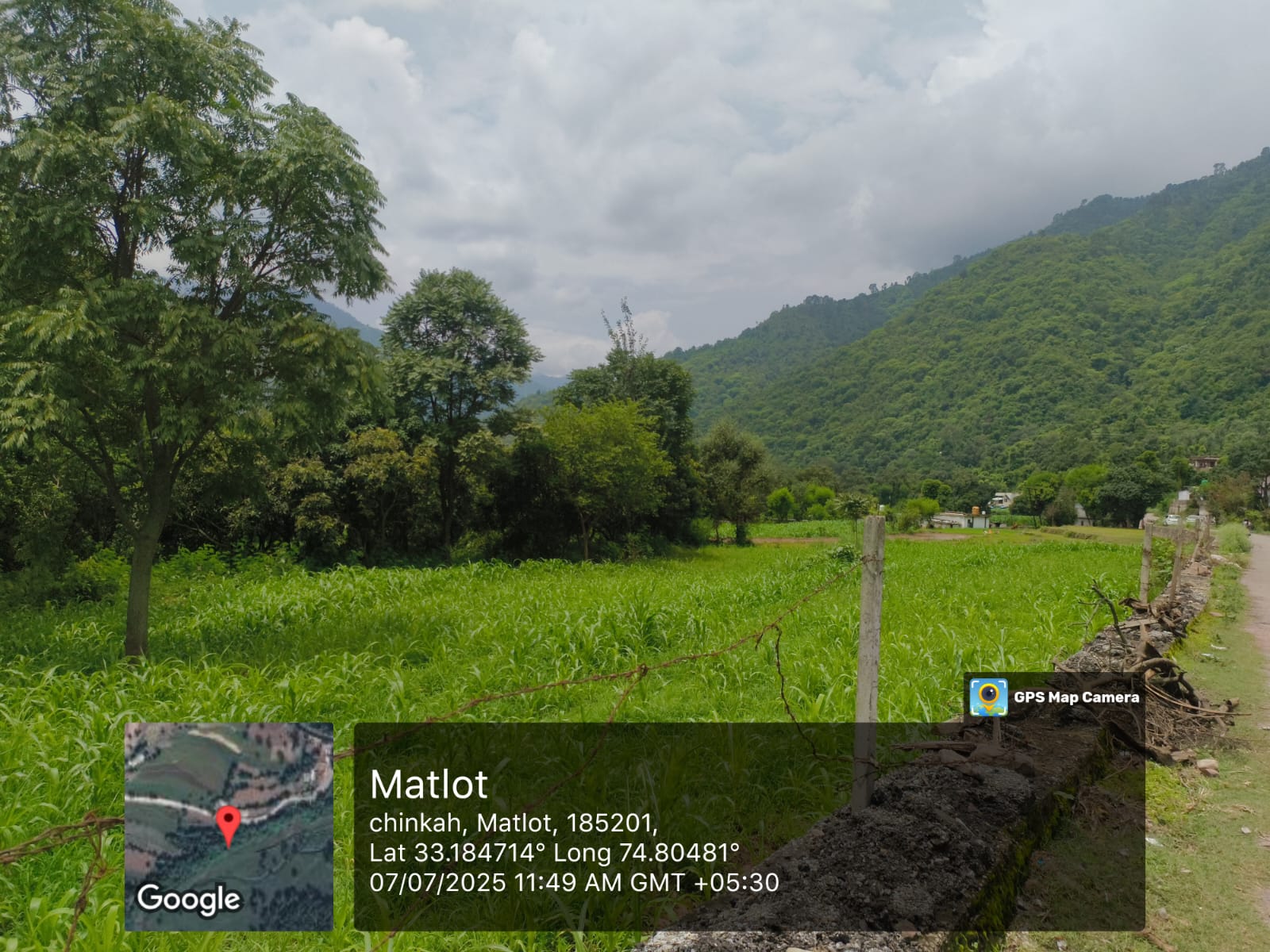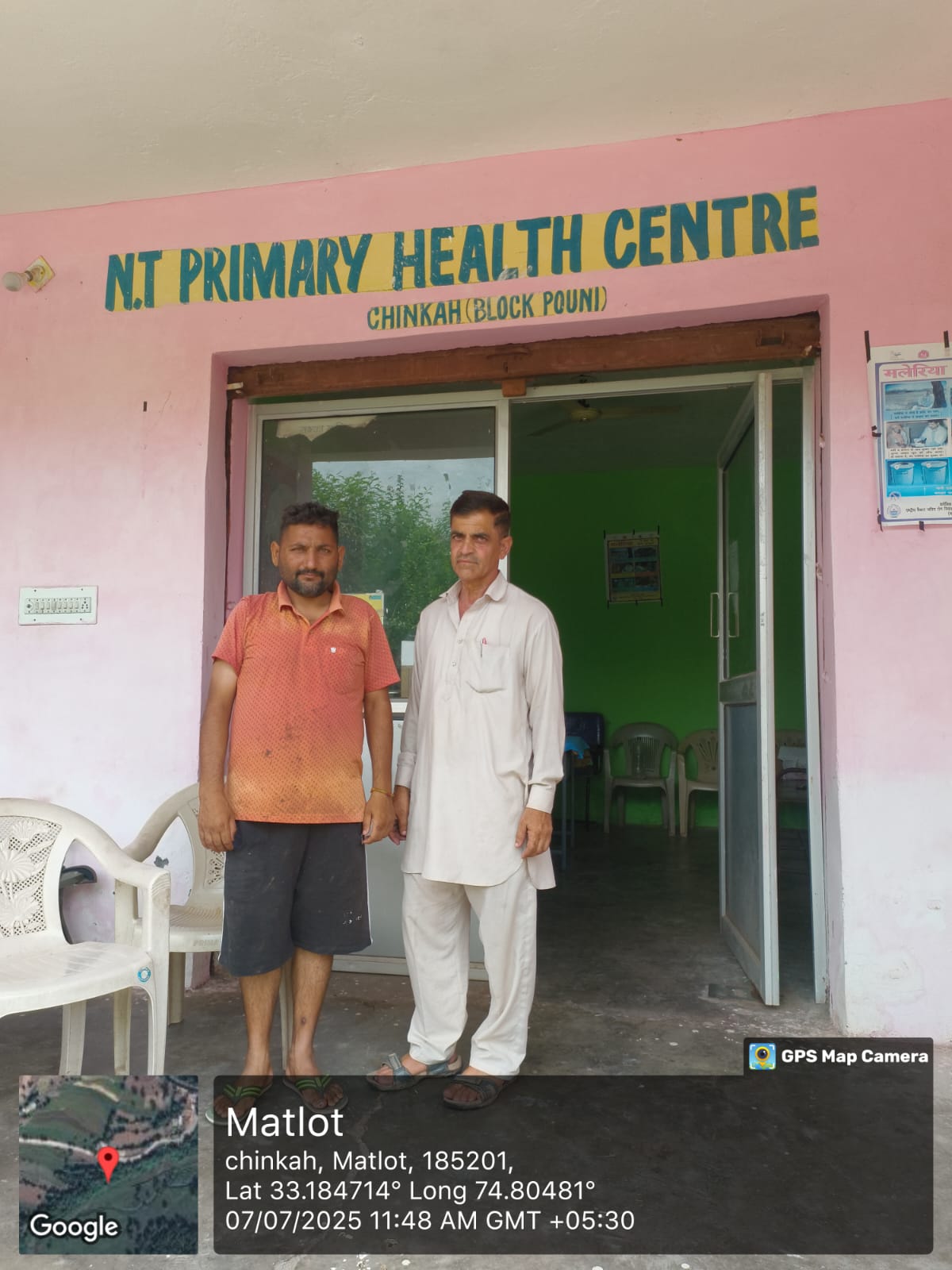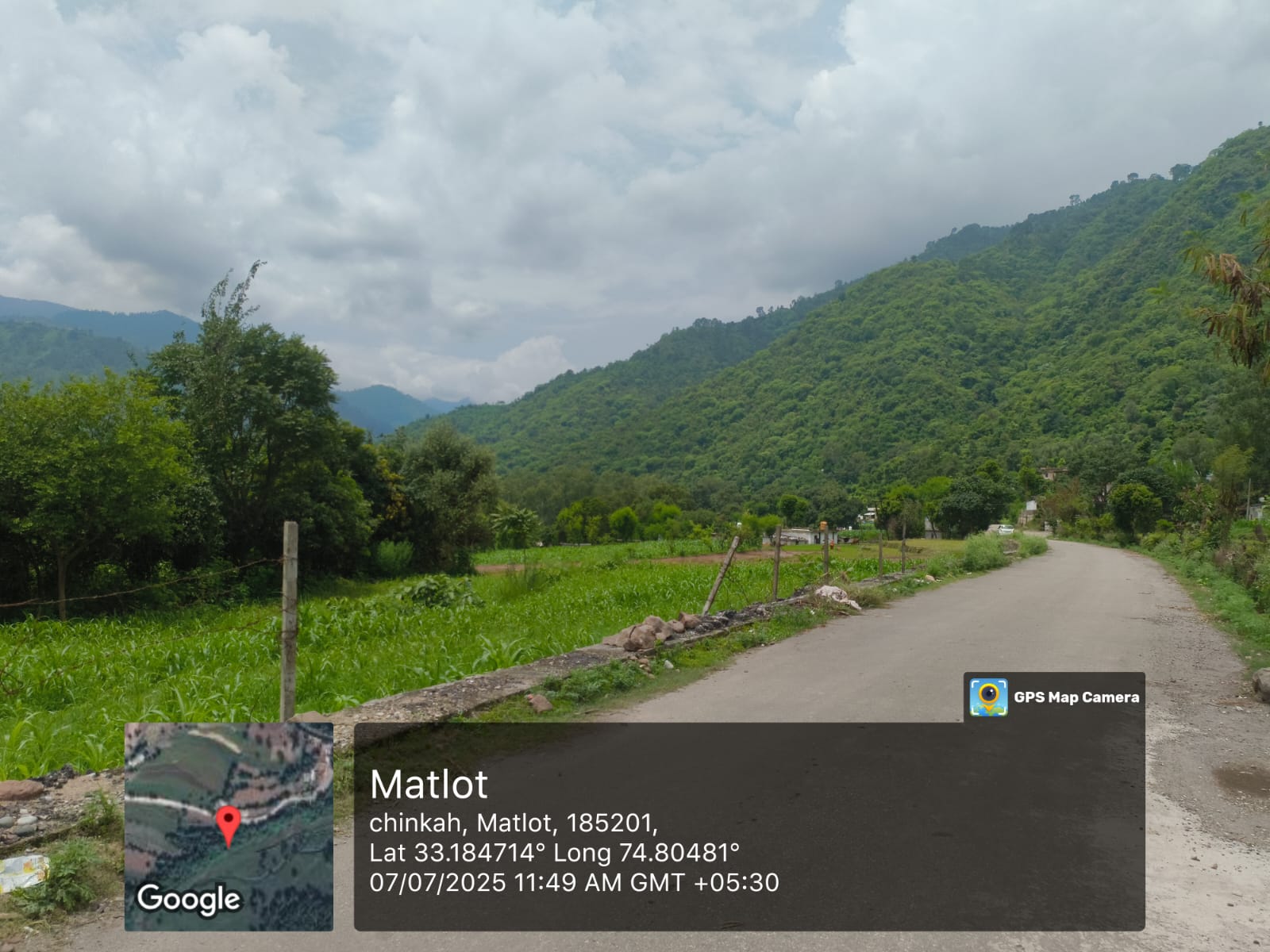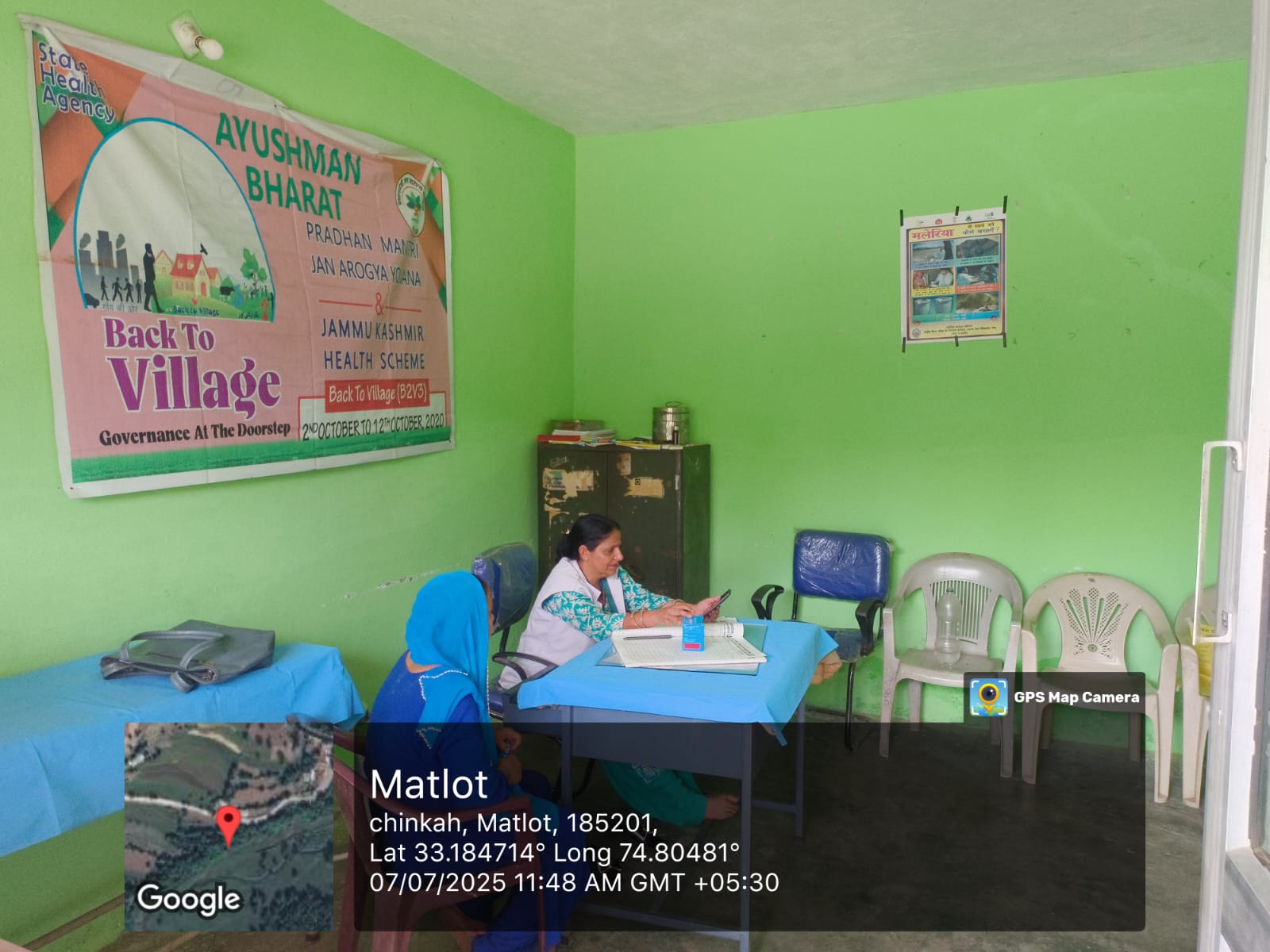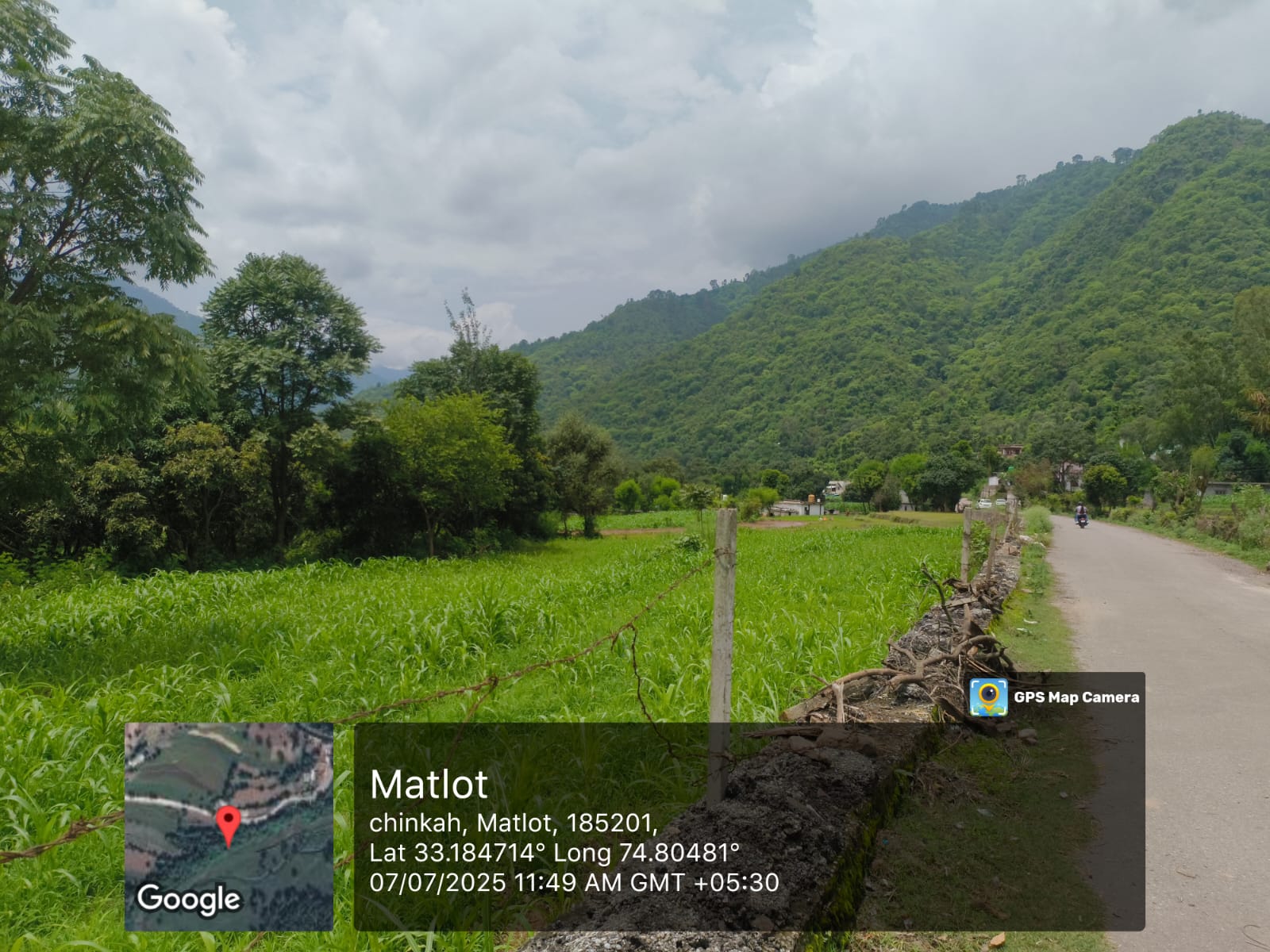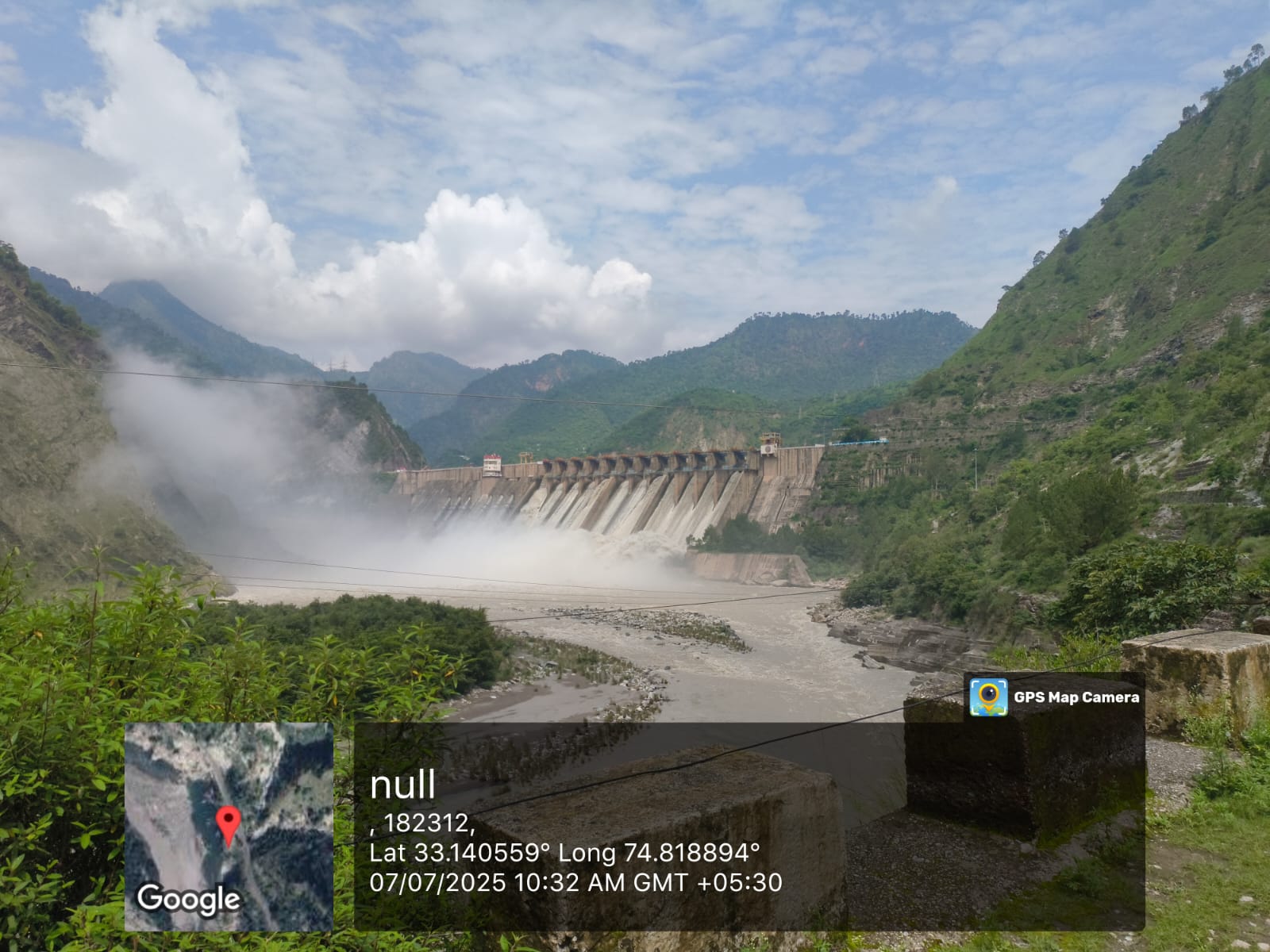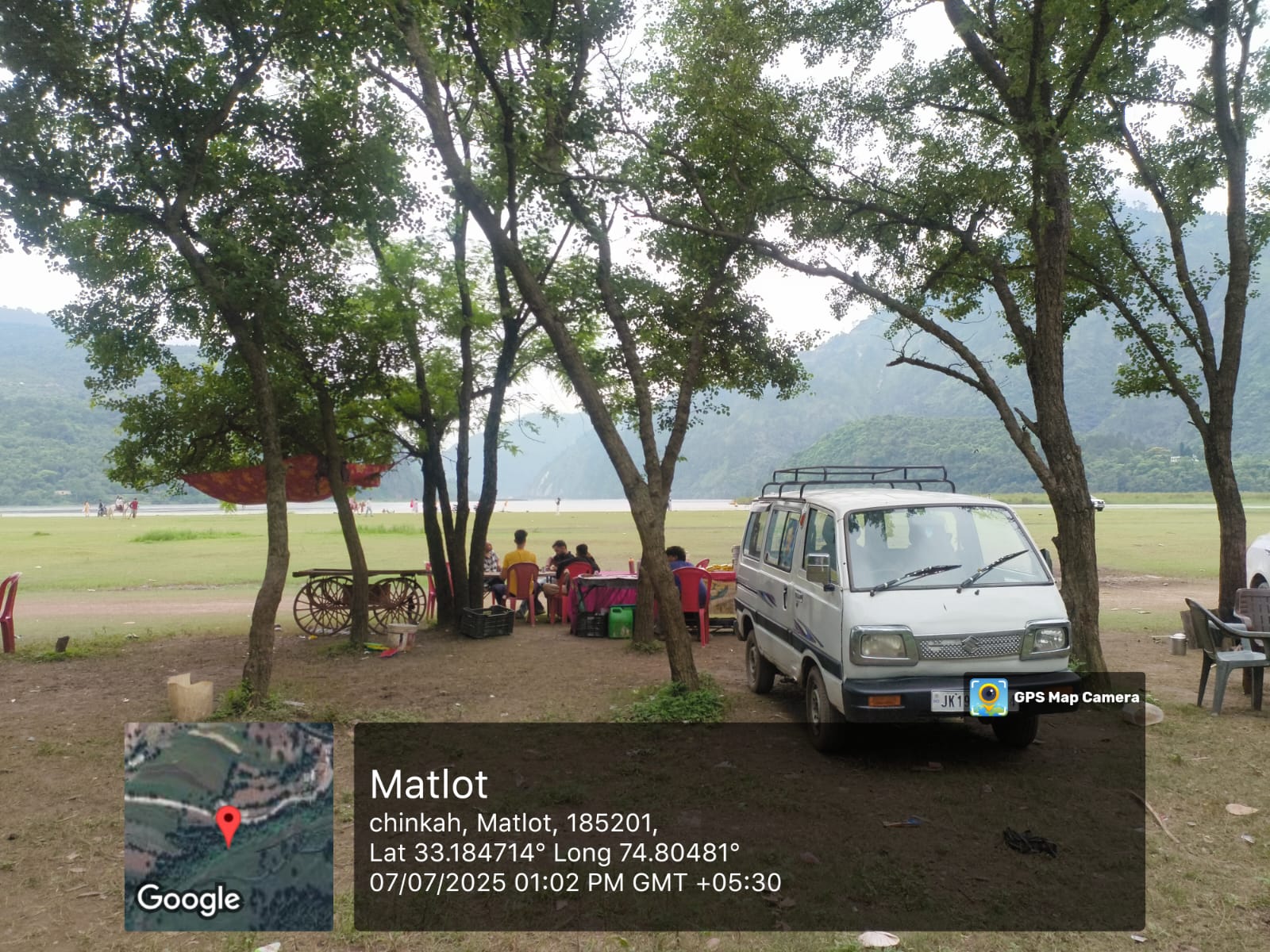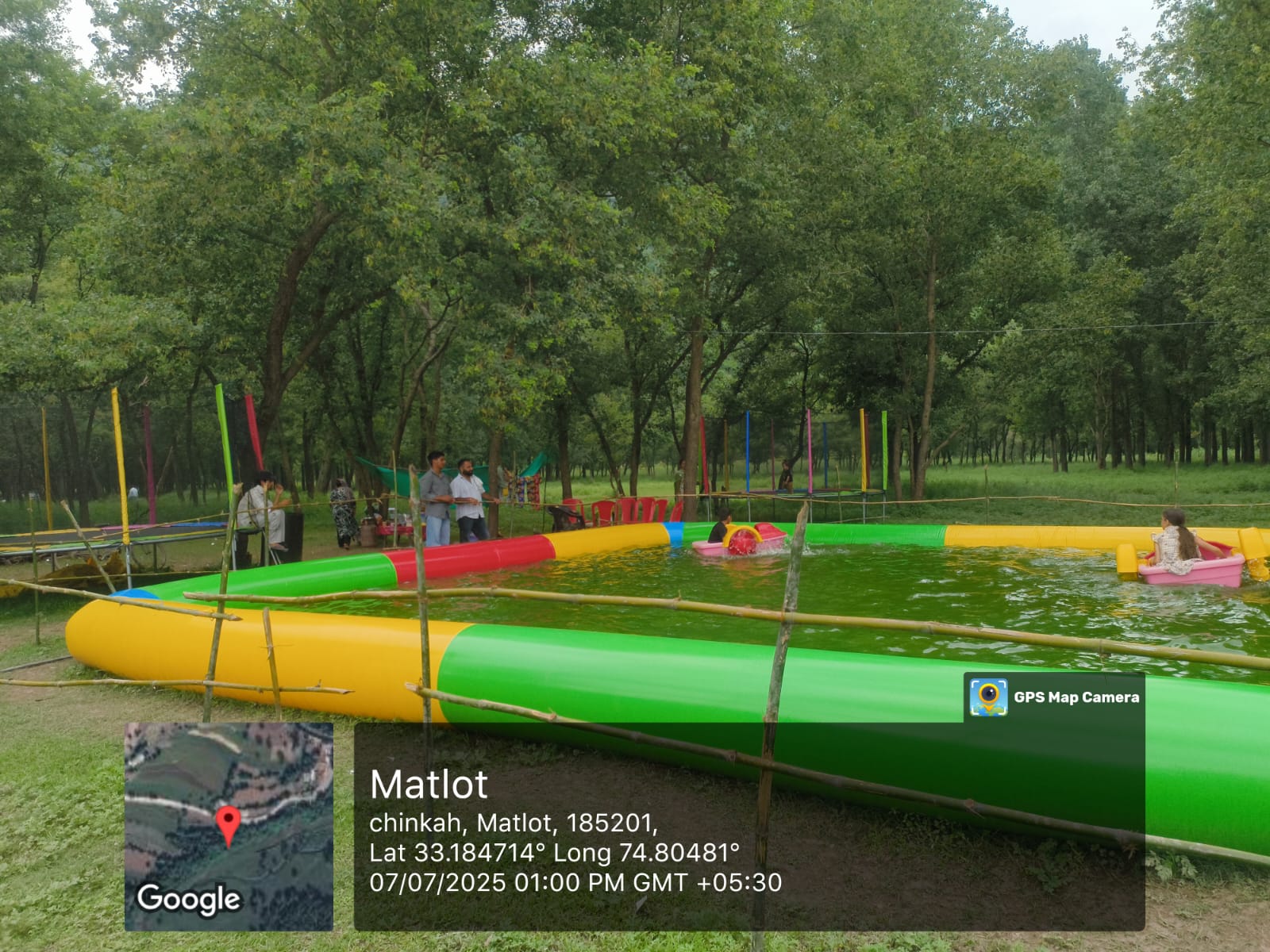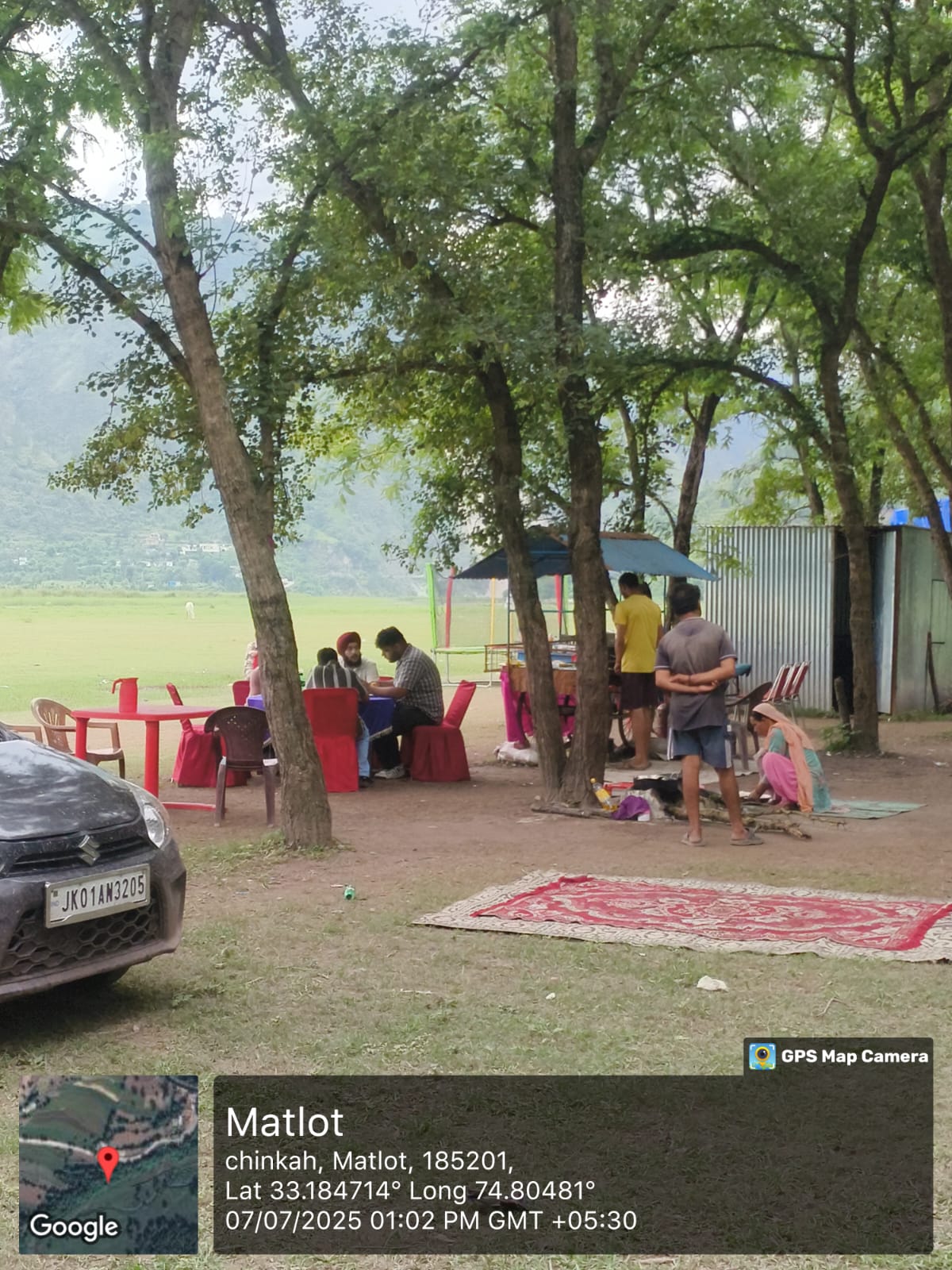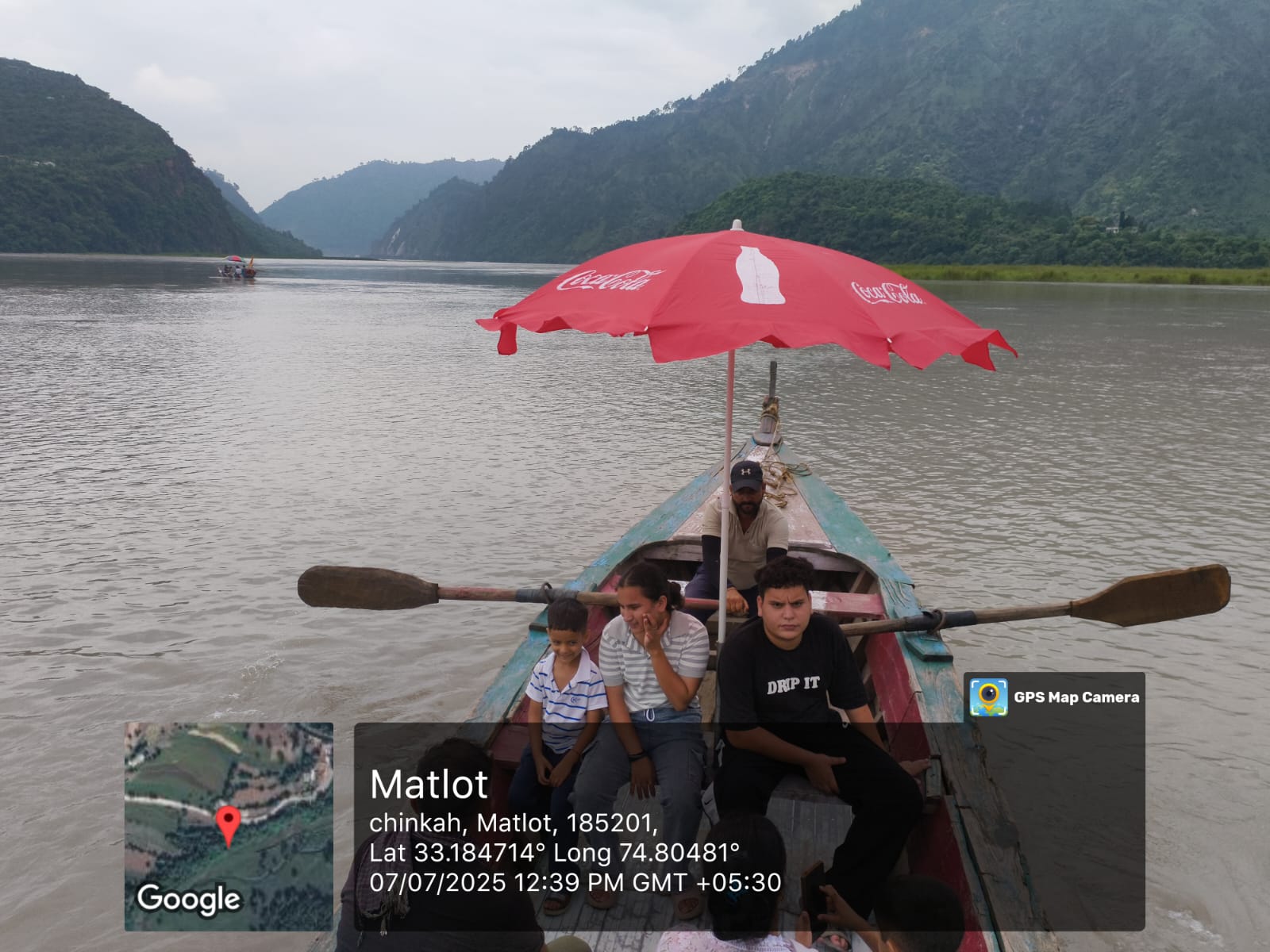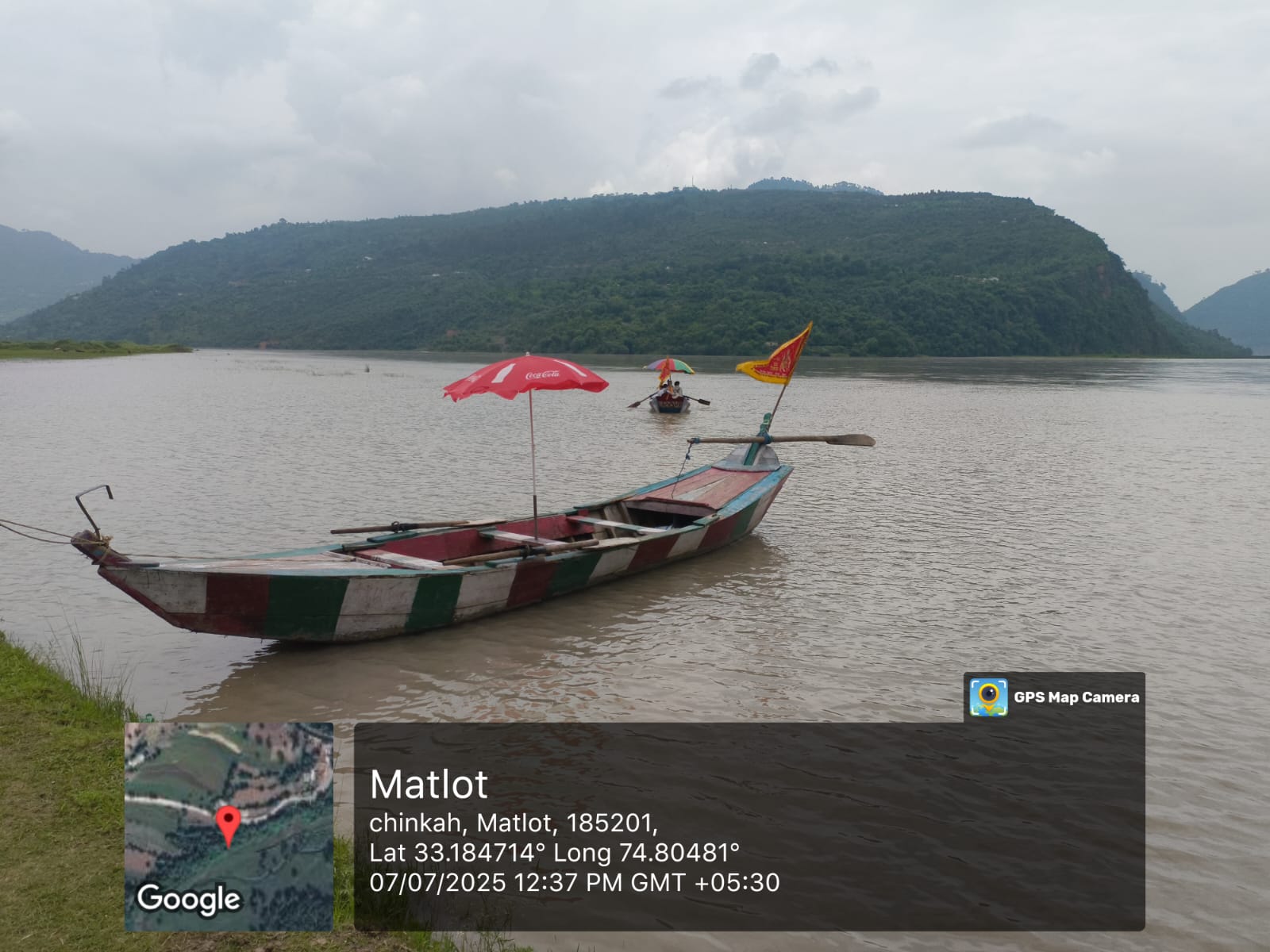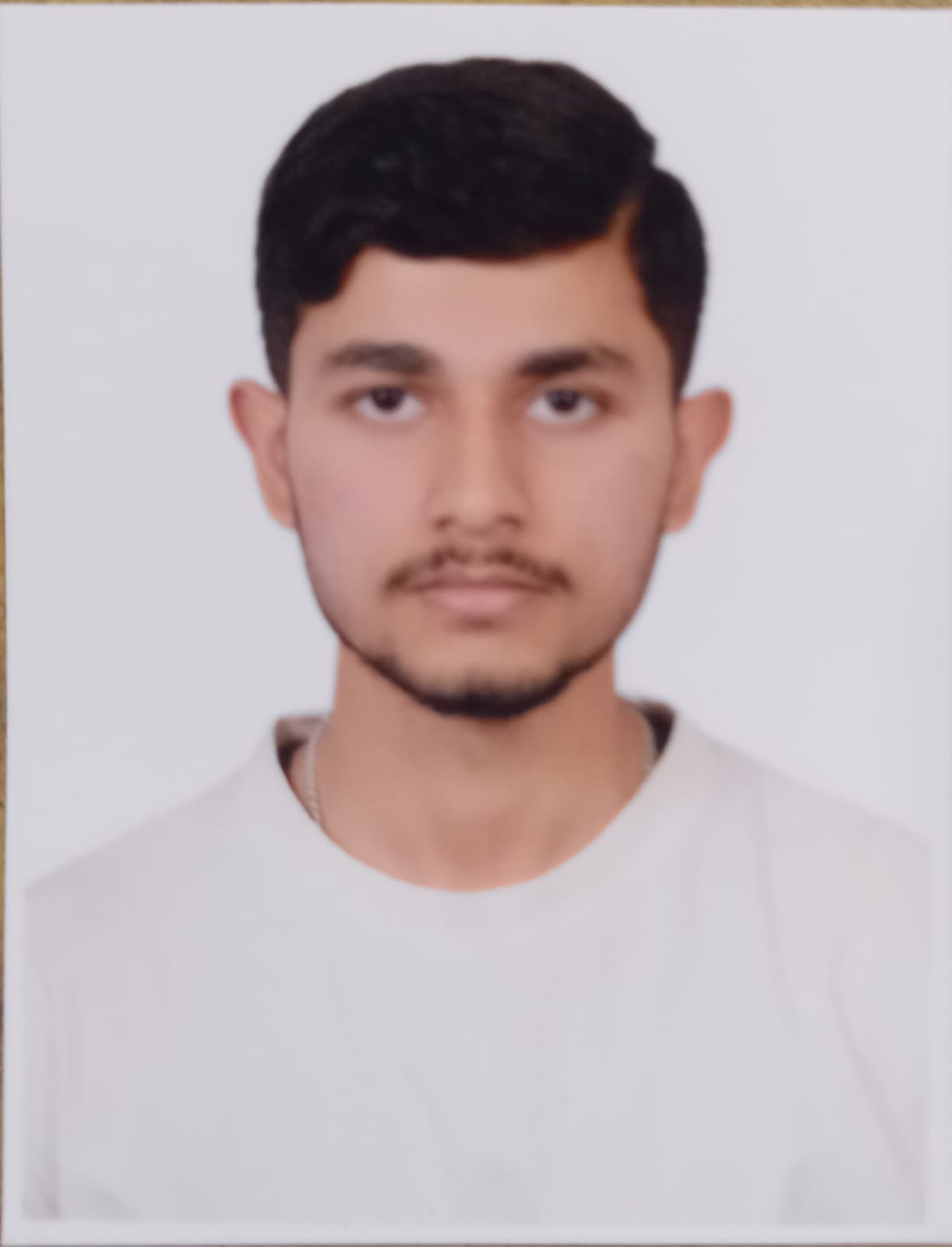Description
Introduction
Chinkah is a small scenic village in Reasi district, Jammu and Kashmir, located in Arnas block near the Salal Dam backwaters on the Chenab River. It lies about 20 km from Reasi town and is surrounded by lush green hills and valleys. The village has a small population, mostly engaged in agriculture. It hosts a government school, MS Chinkah (est. 1959), for primary education. Known as the "Switzerland of Jammu", it is emerging as a tourist spot for camping and picnics. However, the village still lacks proper infrastructure, healthcare, and connectivity.
Geographical and Demographic Overview
Chinkah is a village in Arnas block of Reasi district, Jammu and Kashmir, situated near the backwaters of Salal Dam on the Chenab River. It lies about 20 kilometers from Reasi town, 46 kilometers from Katra, and 118 kilometers from Jammu. The village is surrounded by lush green hills, valleys, and water bodies, giving it a picturesque landscape.
Chinkah covers an area of around 213 hectares, of which nearly 59 hectares are used for agriculture, both irrigated and unirrigated. According to 2009 records, the village had a population of about 267 residents living in 49 households. The community shows a nearly equal gender ratio, with a small proportion belonging to scheduled castes.
Cultural Heritage
The cultural heritage of Chinkah’s Dogra community is marked by the Dogri language, folk songs, and traditional dances like Kud. Festivals such as Lohri, Baisakhi, and Diwali are celebrated with great enthusiasm, strengthening social bonds.
Their cuisine, including rajma-chawal and other local dishes, reflects the agrarian lifestyle of the region. The community is also known for its values of hospitality, respect, and bravery, with many carrying forward the Dogra martial tradition.
Natural Beauty and Recreational Spaces
Natural beauty and recreational spaces in Chinkah are defined by its location near the backwaters of Salal Dam on the Chenab River, surrounded by lush green hills and serene valleys. The village offers breathtaking views, fresh air, and a peaceful environment, often earning it the title “Switzerland of Jammu.”
Its natural setting makes it an ideal spot for camping, picnics, boating, and trekking, though certain areas near the reservoir are restricted for safety. The untouched landscapes and tranquil atmosphere give Chinkah great potential as an eco-tourism destination while providing locals and visitors with spaces for relaxation and recreation.
Community-Centered Lifestyle and Social Values
In Chinkah, the community-centered lifestyle is defined by unity, hospitality, and mutual support. People live closely, celebrate festivals together, respect elders, and share responsibilities, creating a strong and cooperative social fabric.
Principal Attractions
The principal attractions of Chinkah include the backwaters of Salal Dam on the Chenab River, which provide stunning panoramic views of water and surrounding hills. The lush green valleys and serene landscapes make it a perfect spot for camping, trekking, and picnics. Its calm environment and natural charm have earned it the title “Switzerland of Jammu.”
In addition, the village’s proximity to religious and cultural sites in Reasi further adds to its tourist appeal, making Chinkah a blend of natural beauty and cultural richness.
Economic Activities and Primary Livelihoods
In Chinkah, agriculture is the primary source of livelihood, with villagers cultivating seasonal crops and practicing animal husbandry to support their households. Small-scale trading and daily wage labor also contribute to the local economy, though opportunities beyond farming are limited due to a lack of industries and infrastructure.
Some residents are employed in government services and the armed forces, reflecting the Dogra community’s martial tradition. Overall, the economy of Chinkah is simple, traditional, and largely dependent on agriculture.
Educational Infrastructure and Access to Learning
Chinkah has a government middle school providing basic education, while nearby schools cover up to the middle level. For higher studies, students travel to Reasi or other towns, as the village lacks advanced institutions. Education is valued, but limited facilities and resources remain challenges.
Healthcare and Wellness Services
Healthcare in Chinkah is limited, with residents depending on small health centers nearby for basic needs and traveling to Reasi or Jammu for serious treatment. Traditional remedies are also used due to the lack of proper medical facilities.
Accessibility and Transportation
Accessibility and transportation in Chinkah are limited, with basic road connectivity to Reasi and nearby areas. Public transport is scarce, so residents mostly rely on private vehicles or shared transport, making travel for education, healthcare, and markets somewhat difficult.
Sports and Recreational Facilities
Sports and recreation in Chinkah are mostly community-based, with open fields used for games like cricket and football. The natural surroundings also offer trekking, picnics, and nature walks, though modern facilities are lacking.
Best Time to Visit
The best time to visit Chinkah is from March to June and September to November, when the weather is pleasant, the hills are green, and the scenery is at its best. Winters are quite cold, while heavy rains in the monsoon can make travel difficult.
Photos
Videos
Location Map
Contact Information
| Phone Number |
9103104526 |
| Email Address | |
| Website | https://jkpanchayat.jk.gov.in/homeview.php?panchayat=Chinkah&block=Thakrakote |

